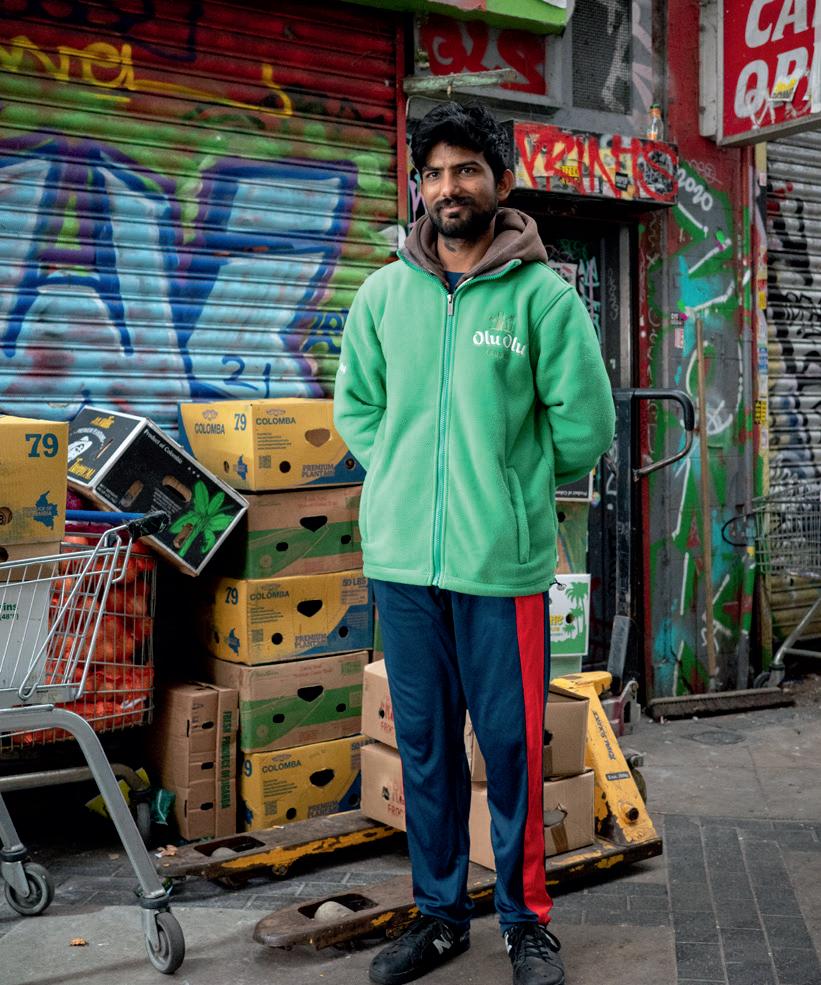Funding for a fairer London.
Funding for equality change better pay equal rights justice communities safer homes families advice a fairer London.

Funding for equality change better pay equal rights justice communities safer homes families advice a fairer London.
It’s been a challenging year for Londoners, with increased cost of living continuing to have an impact, particularly for those already struggling to make ends meet.
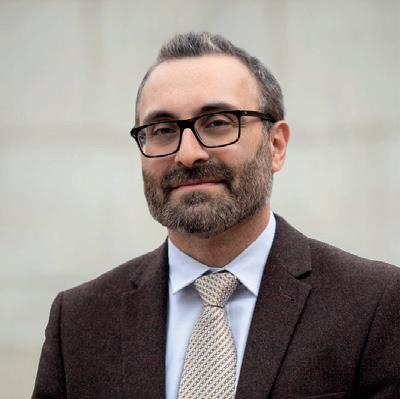
But we’ve also seen some great strides forward, including the results of amazing campaigning work by partners to make London a Living Wage City, which is already putting extra pounds in people’s pockets. It’s also been great to see the work we’re supporting through the disability justice and racial justice funds starting to play out.
It's hard to believe it's now been over a year since I was appointed chair for Trust for London. One of the first things I did when I started in the role was to chair an event at Toynbee Hall about inequalities, where Professor Matthew Desmond launched his new book on poverty.
He spoke about why poverty persists in some of the world’s richest countries. As a society, we often act as if we don’t know why poverty happens, or what the solutions are. But in reality, we just lack the collective will to do something about it. His message was clear. It’s not enough to just tell people to pull themselves up by their bootstraps; we need to attack poverty at the root, and bring about policy and system level change.
For me, that really set the tone for the work ahead, and in particular the visionary goals for a fairer London that we wanted to embed in our next strategy.
I’m proud of the collaborative approach we’ve taken to developing a robust new strategy to take us up to 2030. Not only the way in which staff at all levels engaged with the board, but also the many experts we involved from our grantee organisations, which enabled us to hear the voices of those most affected by poverty and inequality in London.
The outcome is a clear plan for how we can focus our support for greater impact over the coming years.
We’ve also embedded our new strategic approach to grant making – a more open and relational process that means we can work as true partners with grantees. This is building on groundwork and relationships developed by our grant managers over many years.
As funders we must be aware of our power, and use it with care, recognising that no one is more of an expert in inequality than the people experiencing it themselves.
My thanks to the board for being willing to work in such a collegial and effective way this year, with some excellent support from the executive team, including on some challenging but necessary tasks. As our chief executive Manny explains in his introduction, the board has led on important work to research the origins of our endowment, including links with the transatlantic trading of enslaved African people. We’re strongly committed to this work and to sharing transparently whatever the independent investigation uncovers.
We look forward to building on our learning and achievements from the year to achieve further impact as we launch our new strategy in 2024.
Dr Omar Khan Chair
The most surprising development of 2023 was possibly that poverty in London fell to the lowest level on record: 25% of Londoners.
This still means that nearly two and a half million people are living in poverty. High inflation has made life for them even tougher. And the news that poverty is falling probably won’t comfort Londoners who are paying astronomical rent to private landlords.
On the back of the pandemic and with a full-blown cost-of-living crisis, most people would assume poverty had increased. Poverty going down was not what we expected.
In June, I wrote that we shouldn’t celebrate London’s falling poverty until we understood what was going on. Is it falling because people are escaping poverty? Or is it because poorer Londoners are being forced out of the city because of the astronomical cost of living?
Using data from London’s Poverty Profile, I explored different explanations. I was left with the view that we had finally hit the tipping point: London was a place where people on low incomes could no longer afford to live.
This is something we’ll continue to explore in 2024 and we shouldn’t be closed to other factors leading to poverty falling. For example, we know that people in the lowest paid jobs have seen their pay rise, partly because of the real Living Wage – now £13.15 per hour.
My highlights from the year
In 2021, we made our largest ever grant – £4.8m – to Citizens UK and the Living Wage Foundation to campaign to make London a Living Wage City. Together, they’ve been working with community groups to campaign for fair pay across London.
My 2023 highlight was seeing the phenomenal impact of the campaign so far. It has led to a doubling in the number of Living Wage accredited employers in comparison to the two years before the campaign and a tripling of the number of people receiving a pay rise.
That’s £228m of extra money into the pockets of low-income Londoners so far, and we think it could rise to nearly £2 billion of extra pay by 2030. Brilliant numbers, driven by the diverse Living Wage movement across this city. Communities, businesses, universities, religious groups, public bodies and politicians – this success comes from them working together.
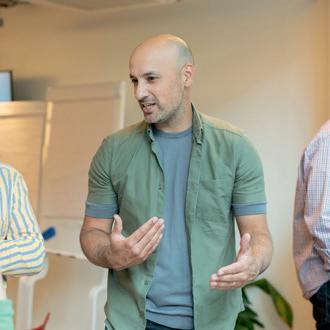
Internally, for us 2023 was a year focused on strategy. Our new 2030 funding strategy launches in the summer of 2024, and reaffirms our commitment to tackling the long-term causes of poverty in London.
At the start of the year, we made the difficult decision to close our main grants programme areas to new applicants and focus our funding for this year on ongoing support to our existing funded partners. We stayed open to new applicants through our disability justice fund and racial justice fund. This meant we still distributed our full grants budget for the year, making over 100 grants worth more than £10m.
Over the past few years, we’ve spent more of our permanent endowment than normal to help with the impact of the pandemic and the cost-of-living crisis. We knew the trade-off would likely be giving out less in the future, but given the scale of what was happening, we felt it was the right thing to do.
While the size of our endowment has declined because we are distributing more, it has also been hit by the inflation and interest rate increases. Half of our assets are in commercial property in the City of London. As interest rate rises increase the cost of borrowing, the value of these assets has decreased.
This combination – an increase in the amount spent and a decrease in the value of some of our assets –means we’ll be giving out less in 2024 than normal. This is a painful message to have to share with you. As inflation decreases and the global economy improves, I very much hope to give a different message in 12 months’ time.
Our focus in 2024 will be in two areas. First, the launch of our 2030 strategy will mean we’ll once again open to fund new work. Instead of having three deadlines as we’ve had in the past, we’ll be open for applications all year round, allowing us to be more responsive to the needs of applicants and the external context.

Secondly, we’ll discover more about the links between the origins of our endowment and the transatlantic trade in enslaved African people. At the end of 2023, our trustees commissioned Professor William Pettigrew, an expert in British involvement in enslavement. William is looking at the extent that people who benefited financially from the slave trade donated to the church parishes from which our assets are derived.
The findings will be reported back to our board in 2024. We’re committed to sharing what we discover transparently, and we’ll be consulting with groups and individuals with experience of the impact of enslavement around the right action to take. We know these will be difficult conversations, but to tackle contemporary injustices we need to confront our own connections to their origins.
Manny Hothi Chief executive
As we developed our new strategy during 2023, we focused on providing continuation grants for existing partners. This provided our partners with ongoing support rather than them having to compete for funding alongside new applications.
During 2023 we gave out over £9m, totalling 115 grants. Alongside this we provided £805k in social investment to support five growing social enterprises. We also invested a further £600k to provide additional support in the form of convening, coproduction and participatory grants processes, evaluation and capacity development.
The bulk of our grants were awarded through the seven priority areas of our previous strategy. Our disability justice fund also awarded its first set of grants, giving out over £1m to 16 Deaf and Disabled People’s Organisations.
Total investment in London in 2023
£10,770,269
Total programme funding in 2023
£9,343,312
Further grant related funding: 12 grants totalling £621,957
(Additional support in the form of convening, coproduction and participatory grants processes, evaluation and capacity development.)
Social investment commitment
£805,000
Total number of grants 115
Average grant award
£86,166
(mean average of main grants awarded, excluding connected communities and grant related funding)
Connected communities
Decent living standards
Disability justice fund
Exceptional grants
Good homes and neighbourhoods
Pathways to settlement
Shared wealth
Stronger voices
Number of grants Better
Better work
Connected communities
Decent living standards
Disability justice fund
Exceptional grants
Good homes and neighbourhoods
Pathways to settlement Shared wealth Stronger voices
£164,500
£1,056,994
£1,416,013 £1,205,224
£1,098,655 £657,884 £1,226,500 £1,691,242
£826,300
Primary activity as % of our grant making in 2023
Delivering advice services
Delivering other services
Campaigning
Research
Shifting public narratives
Capacity building
Other
Grants focused on specific beneficiary groups as % of funding
Women
Older people
Migrants (any status)
LGBT+ people
Deaf and/or Disabled people
Children and young people
Black, Asian and other racialised people
NOTE: A small number of grants are counted twice – where they focus on intersectional identity – eg a grant supporting Black women is counted under Black, Asian and other racialised people and Women.
Developing a new strategy to take us to 2030 was a vital task during 2023 to ensure we continue to support the most impactful ways to address poverty and equality in our city.
A lot has changed since we wrote our last strategy in 2018, both in the external environment and in how we function as an organisation. With a new senior leadership team in place, we knew that reviewing our strategy would offer an opportunity to refresh our organisational values and think about our longer-term vision for London. We also wanted to review the way we approach grant making and management – to be sure we’re setting our partner organisations up to succeed and make the most difference to the lives of people across the city.
Over the years we’ve learned a lot from the organisations we fund about the key drivers of poverty in London, including inequalities in the housing, social security, work and migration systems. We wanted this specific expertise to be at the heart of our thinking about the future, so we designed a highly collaborative process which brought in stakeholder views from all over the city to help review our strategic direction.
Between April and September 2023, we ran a series of workshops with external partners and stakeholders. We also arranged individual conversations with experts from all of our programme areas. In total our grants managers engaged with over 140 experts drawn from organisations we fund, think tanks, peer funders, trade unions, and local and regional government.
Our ambitions to improve the lives of Londoners have always been huge and wide-ranging. But we only have limited resources, and the message was clear from our review that it would be better to focus on a narrower field of work, rather than spread ourselves too thin. This approach will help us build more thorough expertise in certain areas and work more deeply with funded organisations to collectively achieve change.
Our new strategy is therefore to focus on building better economic and social justice for London. It will build upon our work since 2018, cementing our longterm commitment to tackling the drivers of poverty in London. We’ll be launching the full detailed strategy in 2024, setting out our long-term visions and 2030 goals for work in these areas – all aiming to create a fairer London.
“We remain hugely grateful to everyone who shared their lived, learned and practical experience with us. We received lots of insight into the areas we were exploring, and received a clear message that we should focus on making the most impact with the resources we have.”
Alex Sutton and Klara Skrivankova, joint grants directors
and social
the two pillars of our new strategy
London remains a deeply unequal place. To create a fairer city, we need a strong civil society that’s able to fight for economic justice, so that Londoners have enough income for a decent standard of living, and for social justice, so everyone can thrive regardless of who they are. These two pillars – economic and social justice – are two sides of the same coin and will form the foundation of our new strategy.
Our economic justice programme aims to increase Londoners’ incomes and reduce their cost of living. We’ll focus on:
• Decent work, ensuring all workers in London enjoy decent pay and conditions.
• Strengthening social security, so it’s designed around the needs of Londoners, is fairly administered, and maintains the dignity of claimants.
• Tackling the housing crisis, working towards a future where everyone in the city can live in stable, good quality, affordable homes.
• Eliminating the poverty premium so Londoners in poverty no longer pay a premium for essential goods and services.
Tackling these issues will ensure that many Londoners will be lifted out of poverty. But even then, some people will be unfairly held back because of who they are.
Our social justice programme aims to tackle injustices that lead to some communities being disproportionately pushed into poverty.
We’ll focus on:
• Ending migrant destitution, by fighting for an immigration system that is humane and welcoming and does not force people into destitution.
• Justice for Disabled people, by investing in a strong, vibrant, diverse and sustainable disability justice movement in the city.
• Tackling racial injustice by working to increase income and wealth in Black and minoritised households and communities in London.


Our strategy will also embed our commitment to strategic philanthropy. We’re going to be more specific about the changes we want to see, both immediate and long-term. But this doesn’t mean we’ll be prescriptive about how this change happens. Instead, we’ll back the experience and ingenuity of London’s civil society by being a flexible, supportive and pro-active funder.
The review process also saw us revisit our values as an organisation. In 2023 we launched refreshed values to reflect our team culture, guide our work and inform the decisions we make.
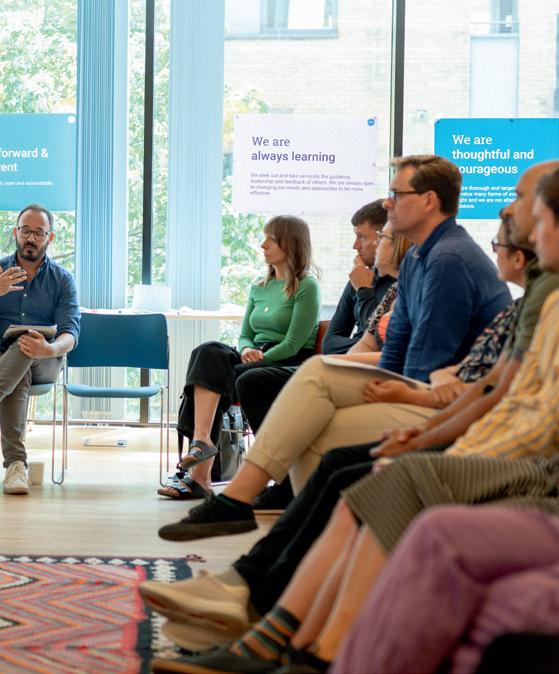
We are thoughtful and courageous.
We are thorough and targeted in our approach. We value many forms of evidence and insight, and we are not afraid to make difficult decisions.
We use our power with care.
We recognise, use and share power to achieve our mission.
Relationships are at the heart of what we do.
We build strong, supportive relationships, and listen deeply to the needs of the people we work with. We respect different perspectives.
We are straightforward and transparent.
We strive to be direct, open and accountable.
We are always learning.
We seek out and take seriously the guidance, leadership and feedback of others. We are always open to changing our minds and approaches to be more effective.
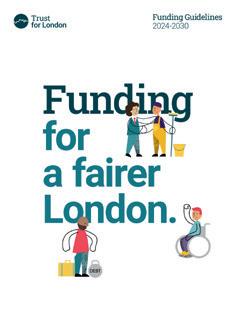
Find out more about our 2030 strategy.
The rising costs of living are affecting everyone, and the lowest paid are at the sharp end. Too many Londoners don’t earn enough to get by and more than half of all Londoners in poverty are in work. In 2021 we committed £4.8m to Citizens UK over four years to make London a Living Wage City. 2023 marked the halfway point of the project.
The ‘Making London a Living Wage City’ campaign aims to ensure that everybody is paid at least a real Living Wage – the only wage rate calculated based on the cost of living.
Our hope is that from our £4.8m committed in 2021, Londoners on the lowest incomes will see a combined additional £635m in their pockets.
Since the Making London a Living Wage City initiative began:
• 1,521 organisations headquartered in London have become Living Wage accredited.
• 48,072 people have received pay uplifts as a result.

Michael is a driver fitter for Enabled Living, a London Living Wage and Living Hours employer in East London. He is also a member of the Living Wage Foundation’s Leadership Academy.
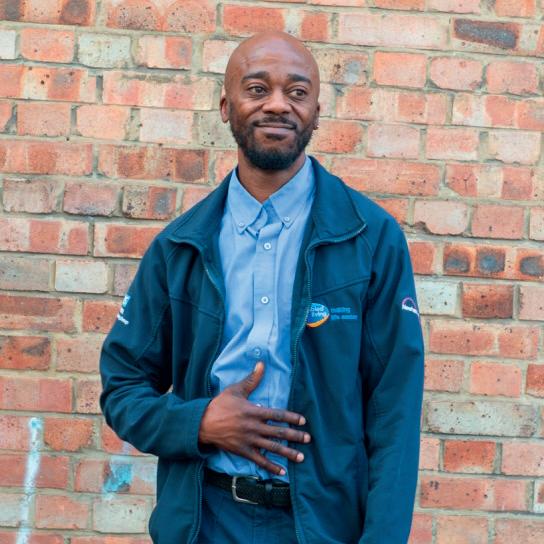
Alongside a fair wage, workers need security of hours. The Living Wage Foundation’s Living Hours campaign is doing vital work in this area.
By the start of 2024, seven organisations headquartered in London had become Living Hours accredited, guaranteeing around 800 employees secure hours.
" I have been going to events and encouraging employers to sign up to paying the real Living Wage. I want to inspire more companies to support their staff in the right way and tell them how much it really can positively impact people for the better.
Previously, I was working in the retail sector and I was plagued by antisocial hours, making it really difficult to help raise a family. I have three young children and since working for a Living Hours employer I have four extra hours on an evening to spend time with them, watch them grow up and support them. I also have elderly parents who, at times, rely on me and it means I can now look after them much easier.
You can see how successful good employers, who treat their staff well and provide job security, really are. Productivity really does grow when staff feel supported, so it’s important more employers take this into consideration."
The Living Wage campaign was started in 2001 by the local community in East London to tackle the issue of low pay. Although the campaign has grown hugely since then, it is still led by the community. Citizens UK works with Londoners from the city’s most deprived communities to use their own voice to make change.
• 11,964 people have engaged in the campaign.
• 255 workers and leaders from communities in deprived areas are building their power to make change.
For change to happen in London, we need to understand our city’s problems. With the support of WPI Economics, we produce London’s Poverty Profile to give people working at the heart of the issues the evidence they need to call for change.
London’s Poverty Profile brings together over 100 indicators across five themes –including demographics, housing, work and living standards – to shine a light on economic and social injustice in the capital.
London in numbers
25% of Londoners are living in poverty after housing costs
33% of Londoners living in nonwhite households are living in poverty after housing costs
47% of single parents in London are living in poverty after housing costs

London’s cost-of-living tracker
London’s cost-of-living tracker
In March 2023 we launched London’s cost-of-living tracker. With expenses for Londoners sky high due to the cost-of-living crisis, the tracker shows how high prices affect different household groups.
Crucially, this highlights the unequal impact of the costof-living crisis. As is so often the case, those on lowest incomes are being hit the hardest.
• 26% – the increase in price that households in London with the lowest incomes would have to pay for the same standard of living they had pre-pandemic (November 2023)
• 10% – the amount of this increase that is driven by just two essential categories – food and energy (November 2023)

What the latest census data tells us
Throughout 2023, results were released from the 2021 Census – giving us the most comprehensive picture of London’s population available. We used this data to publish a series of interactive maps, exploring London’s diverse population by ethnicity, age and gender identity, and how these link to deprivation.
Key findings
Ethnicity and deprivation
None of the ‘least deprived’ neighbourhoods in London have a Black African population of higher than 5% – but all of London’s ‘most deprived’ boroughs, bar one, do.
Families and deprivation
In a majority of London’s most deprived neighbourhoods, at least 25% of the population is under the age of 18. But this is the case in just 12% of the least deprived neighbourhoods.
Disability and deprivation
None of London’s least deprived neighbourhoods have a Disabled population of more than 15%. But London’s most deprived neighbourhoods have an average Disabled population of 15.5%. In some of the most deprived neighbourhoods, one in five people are Disabled.
Gender identity and deprivation
Non-binary and Trans Londoners are 3.5 times more likely to live in London’s most deprived neighbourhoods, than in the least deprived.
Explore London’s cost-of-living tracker
Explore our Census 2021 interactive maps
Every year we fund new, independent research to improve our understanding of London’s problems and how we can tackle them. Here are some of our highlights from 2023.
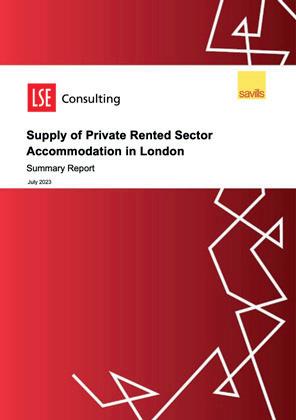
With London facing a deep housing crisis, we co-funded research with London Councils and Capital Letters to understand what’s going on with London’s rental market. Carried out by Savills and the London School of Economics, the research examined the supply of Private Rented Sector accommodation in London, and its relationship to homelessness pressures.
Key findings
• 41% fewer rental properties available than before the pandemic.
• 20% higher asking rents than pre-pandemic.
• 2.3% of properties were affordable in 2022–23 to those using benefits to pay their rents.
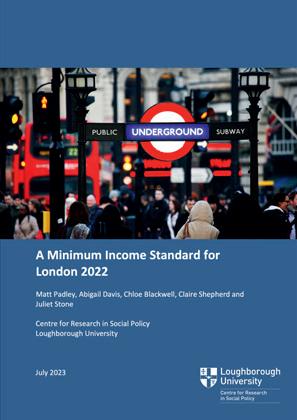
Around one in four Londoners are in poverty. But many Londoners who aren’t in poverty still struggle to afford a decent lifestyle. We fund Loughborough University to explore how much a person needs to earn to afford an acceptable standard of living in the capital – and how many people fall short of this.
Key findings
• 4 in 10 Londoners don’t have the income they need for a decent standard of living.
• 35% of pensioners can’t afford a decent standard of living in London – compared to 21% in the country as a whole.
• Nearly half of all children are in the capital (48%) are growing up in households with incomes below this level.
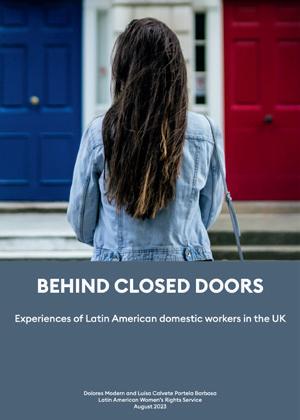
Latin American women are overrepresented in domestic work in the UK, a highly feminised and unregulated sector where work is seen as unproductive and unskilled, and where the workforce is virtually invisible.
"The working day was long. I would not leave the house at all."
Karina (Ecuadorian)
Latin American Women’s Rights Service carried out 12 in-depth interviews, highlighting the levels of isolation, exploitation and abuse that are endemic in the sector –and the ways these affect women workers in the Latin American community.
“The lady wouldn't let me sleep. I didn't sleep at all for three months. One or two hours each night tops –because she wanted me to serve her during the night."
Isabella (Brazilian)
"I was forced to stay there. I could not allow myself to go out in the street and look elsewhere. I didn't have that luxury because if I left, I knew that the money I had saved up, the little I had, would run out immediately."
Rita (Ecuadorian)
Explore all research we’ve funded at trustforlondon.org. uk/research

London is a deeply unequal city. We’re empowering people with the funds and the facts to change that. Each year we support hundreds of civil society organisations working across our capital to build a fairer city, from community groups helping people build skills and knowledge to large-scale campaigns and research.
Whatever we’re working on, all our funded projects have one core aim –to make London a better, fairer city.
Over 2023 we gave out 115 grants within eight core funding programmes, plus 12 exceptional grants and additional social investment.
This came to a total value of £10,770,269.
Total programme funding awarded £9,343,312
Projects funded 115
Exceptional grants funding: 12 projects totalling £621,957
Social investment funding totalling £805,000
Better work
Connected communities
Decent living standards
Disability justice
Good homes and neighbourhoods
Pathways to settlement
Shared wealth
Stronger voices
Paid work is crucial to tackling poverty. But many jobs are low-paid, insecure, unrewarding and fail to act as a stepping-stone into a future career. Low pay and the abuse of rights is increasingly the norm in many industries. We want better work for everyone, where those in work are treated with decency, respect and paid at least a Living Wage.
of Londoners in poverty are in employment 49%
We fund work that supports progression out of low-paid jobs, employment legal advice, advocacy, and capacity and skills building.
Total amount awarded
£1,056,994
Projects funded
9
Dr Katharine Sutton, director, Aspire Community Works
"Good employment and employee voice are critical factors in breaking down inequality and poverty. Yet, all too often, the voices of the most disadvantaged in our labour force are left unheard or ignored. The #BetterForUs Campaign, run by Aspire Community Works and supported by Trust for London and Community, aims to amplify employee voice, particularly among people in the everyday economy. It incorporates employee voice as one of its five key principles."

Aspire Community Works CIC
£68,500
Funding for Aspire’s #BetterForUs campaign, which promotes better work and sustainable procurement by providing advocacy, research, information and the voice of lived experience to key stakeholders within the commissioning process.
£113,600
Funding the salary of a part-time caseworker to provide free specialist employment advice, alongside support with other social welfare issues. The funding also allows the project to undertake participation in research policy and training in employment areas.
Disability Law Service
£140,444
Providing specialist legal advice and assistance for Disabled Londoners experiencing discrimination, threats and insecurity in the workplace, and supporting them in obtaining and retaining employment. The team also educates employers and supports helpline staff in other disability charities, building on the successes of the existing grant.
£90,600
The grant covers FLEX staff capacity to manage advocacy coalitions, the Labour Exploitation Advisory Group and the Detention Taskforce, and to lead joint policy work. It also supports wider work coordinating proactive approaches to protecting worker rights in London and the UK.
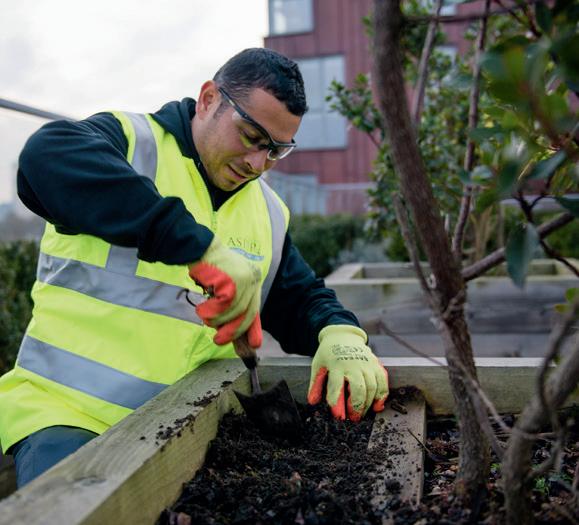
£115,000
Funding the cost of a specialist caseworker, administrative assistant and project coordinator to support Havering residents to claim and protect their employment rights, tackle in-job discrimination, support employment tribunal preparation and enforcement, and assist in claiming unpaid wages and/or payouts.
Independent Workers Union of Great Britain
£151,000
Funding towards the head of legal department and a caseworker, who are both Spanish speakers. They will build capacity by undertaking casework (eg workplace disciplinary/grievance procedures), submitting and handling employment tribunal claims, building strategic litigation cases and influencing policy, mostly on employment-related issues.
£61,000
Supporting work around Turkish/Kurdish-speaking employees and employers in various low-wage industries, but especially the service sector. Work is targeting exploitative and/or illegal employment practices and raising awareness to ensure workers can understand and benefit from their employment rights; aiming to improve working culture in the community.
Ros Bragg, director, Maternity Action
"Asylum support rates are very low, leaving pregnant women and new mothers in deep poverty. Increasing numbers of women are living in hotels for extended periods and offered only in-kind support. By contributing to a series of legal challenges we have been able to help secure increases in the rate of asylum support paid to women, both in hotels and in dispersal accommodation.

We provided detailed witness statements in two successful High Court challenges to rates of asylum support for pregnant women and new mothers. In our witness statements, we reviewed public health guidance on healthy eating during pregnancy, the academic evidence on risks associated with poor diet and the mainstream benefits provided to pregnant women and new mothers, including the Healthy Start Scheme. We also drew on Maternity Action’s research with asylum seeking women, which documented their poor diets and the significant health risks they faced during pregnancy.
The first legal challenge led to pregnant women and new mothers in hotels receiving weekly cash payments of £3 and £5. Prior to this, these women were entirely dependent on hotels to provide all meals, snacks and other essentials, despite evidence of gaps in provision. The second case resulted in the Home Office agreeing to increase the additional weekly payments to pregnant women and new mothers by up to £5 per week. In a difficult policy environment, legal cases such as these provided a route to secure vital wins for pregnant women and new mothers."
ShareAction
£236,000
Engaging investors to use their influence to change corporate employment policies and practices by promoting the Living Wage, addressing insecure work and identifying the ethnicity pay gap. ShareAction are coordinating a growing number of Londonbased investors interested in pioneering responsible investment practice to support good work.
£80,850
Funding to provide specialist legal advice on employment rights and in-work benefits to mostly disadvantaged (eg low-income, single) London parents; delivering outreach sessions to working parents via Instagram Live legal clinics; and working with policymakers to improve their understanding of work–family issues and influence their policies/legislation.
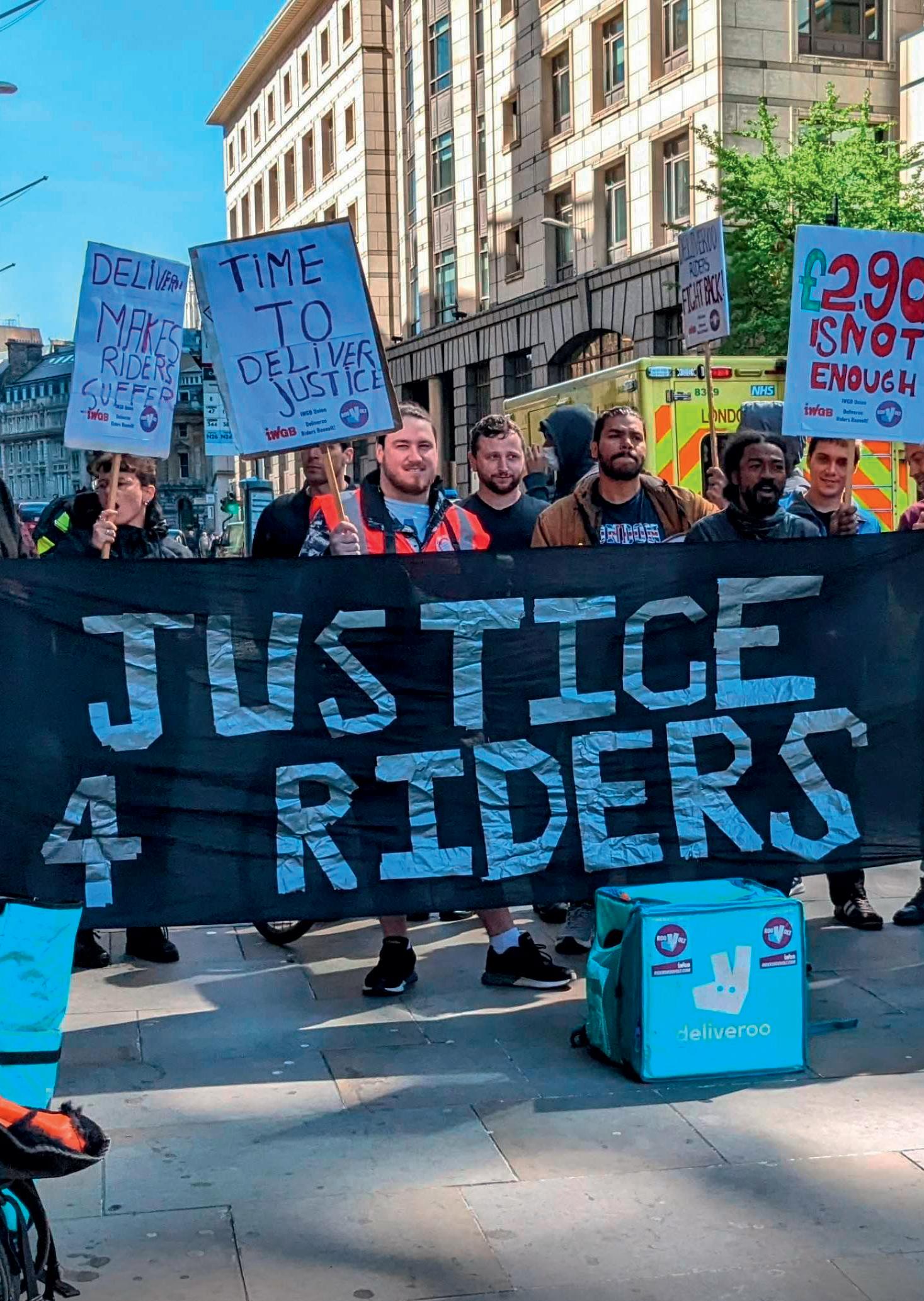
Small community groups make a significant contribution to improving the lives of people and communities in London. They often do this by providing support for people to access their rights and entitlements, and to speak out about issues that directly affect them. This funding is for groups with incomes under £300,000 a year and focuses on campaigning and advice work.
Yejin Lee, head of client experience, Connect: North Korea
Total amount awarded
£1,416,013
Projects funded
23

"Our partnership with Trust for London since 2021 has helped hundreds of disadvantaged North Korean refugees and asylum seekers withstand the pandemic and cost-of-living crisis. Your support has empowered our disadvantaged community to overcome the worst aspects of poverty and inequality, and to access essential services, employment and further education. Our qualitative advice service remains a vital community lifeline, our continued growth and impact a testament to your solidarity.
Together, we will continue to tackle the root causes of inequity and build a fairer city where all minority communities can have a say on the issues which most affect them."
Funding list
Active Horizons
£50,000
Funding to continue work to raise the voice and engagement of Black, Asian and ethnic minority young people living in Bexley through training in leadership and advocacy sessions that will enable them to develop skills. The grant helps pay for the youth community engagement officer who is leading the project.
Black Deaf UK
£90,000
Funding the development and subsequent delivery of a project to work with Black Deaf Londoners to provide support with housing issues.
Bosnia and Herzegovina Community Advice Centre
£120,000
Funding for continuing and expanding Bosnia and Herzegovina Community Advice Centre’s holistic outreach support service.

Bromley Experts by Experience CIC
£50,452
Funding a campaigns and representation coordinator to support local Disabled people to understand how local and national policy affect their access and inclusion and to take collective action to challenge barriers, including supporting local thematic forums and linking local Disabled people with the wider London DDPO (Deaf and Disabled People’s Organisations) community.
Community Development Association for Minority Communities Ltd
£40,000
This project provides benefit advice services to the most disadvantaged people from Black and minoritised communities to enable them to access benefits and maximise their income. This includes assistance with online forms, appeals and reviews, and resolving benefits queries. Our grant covers the salary of a benefit advisor, plus rent and volunteer expenses.
Connect: North Korea
£75,000
Funding to build capacity to deliver qualified, expert wraparound advice and support to disadvantaged North Koreans in New Malden. To build people’s resilience, increase access to rights and entitlements, overcome discrimination and inequality, increase digital access, secure stable employment, integrate and build a better life in the UK.
Oladapo Awosokanre, founder, African Development and Advocacy Centre (AFRIDAC)
"We know there are so many issues within our community that we can’t cover everything, so we started out by building an army of community advocates. We train them and provide them with the tools and capacity to be able to act on the issues affecting their individual communities. This way we know that many different issues are being dealt with, rather than just one big issue.

We want to build the capacity of people within the Black community, and for people to have a voice. There’s a difference between noise-making and advocating. Sometimes people feel so pressured about an issue, they just want to shout about it. But with advocacy skills, there’s a structured way to ensure that voice is heard by the right people and that it makes change. That’s what we’re hoping to achieve.
Throughout the training, we look at real world campaigns. We’ve looked at the Black Lives Matter campaign, the Living Wage movement, and we’ve unpicked them to see how they worked. Each of the participants also brings an issue of interest from their own community, and we unpick these issues too.
To make sure the impact of the project lasts, we use evaluation and monitoring tools before, during and after the training. As well as this, we provide mentoring. This was something I noticed was missing when I have attended similar training in the past – there was a lack of follow-up. We have a WhatsApp group, so as well as 1-2-1 mentoring, the whole cohort has access to peer support through that group.
Finally, the project is funded for three years. In year three, we’re planning to have a retreat. All of the community champions who have been through the training will come together, and we can see how far people have got with their projects.
So far, most of the participants have been able to implement what they’ve learned in their community. And to me, that is sweet music to my ears."
Dadihiye Somali Development Organisation
£60,000
This funding supports the organisation to continue offering their drop-in advice support services to help disadvantaged, low-income people from most deprived areas with their debts, rent/council tax arrears, housing issues, health, GP registration, education, form-filling, etc. The funding is for the salary of an advice worker.
Ethiopian Women's Empowerment Group
£60,000
Funding for Advice4Women, a project to work with disadvantaged women from Ethiopia and all Black and minoritised communities providing advice and information to meet their social and welfare needs and to access other services. The programme will be user-led, engaging volunteers to foster self-help, empowerment and the ability to operate via both centre- and community-based activities.
Excel Women's Association
£46,000
This grant supports the continued provision of an information and advice service for women in and around Barking and Dagenham. The service supports with welfare benefits, cost of living, housing, access to health, social care, those with no resource to public funds, and other issues. This includes a centre drop-in, workshops and training, and language support during appointments for women whose first language isn’t English.
Fitzrovia Neighbourhood Association
£103,000
Funding towards the running of Fitzrovia Neighbourhood Association’s Advice Service, and to improve its work with the addition of one day a week face-to-face appointments and office facilities at the Fitzrovia Community Centre. This will also expand the advice service availability from three to four days a week.
Harlesden Neighbourhood Forum
£57,377
Supporting the work of the Forum, in particular the coordinator, who engages with the community, local businesses and other stakeholders. The funding also supports a membership growth plan, delivering the capacity and resilience needed to combat local poverty and inequality.
Horn of Africa Disability and Elderly Association (HADEA)
£72,000
A grant to cover part-time salaries for a disability advisor and welfare rights advice worker, plus costs associated with rent and operational costs.
Iraqi Community Association
£45,000
Funding the salary of a part-time welfare advice officer for two years. This role offers advice and support on immigration, welfare, housing, education and accessing relevant services, to disadvantaged members of the Iraqi and Arabic-speaking community.
Kingston Upon Thames Association for the Blind
£61,100
Funding a member of staff to assist with applying for benefits and assisting with the social care needs of persons with visual impairments in Kingston.
Lambeth Elderly Association from Vietnam
£29,000
A grant to employ a debts, housing and benefits advice worker, plus contribute to core running costs of the organisation.
£33,000
A continuation of funding to deliver the support and advocacy service into 2024–25, expanding the provision from one to two weekly sessions to cope with extra demand, related support work, and a small contribution to the organisation’s core costs.
£65,000
An evidence-based policy and advocacy project to improve the financial stability and work opportunities of Londoners with cancer. The grant allows the team to build on an existing model to amplify the voices of Londoners with cancer.
£44,000
A grant to provide an essential advice service to refugees, providing much-needed information on welfare benefits. The service signposts those with complex and high personal needs to relevant advice agencies, specifically addressing their legal, social and personal needs to help empower, support and integrate refugees.
£50,084
A grant to enable the Southwark Travellers Action Group to continue to build on its successful work in ensuring more Gypsy, Roma and Traveller engagement in research, policy and campaigning and the management of the organisation.
£49,000
The funding is for the continuation of STN’s IAG/ advocacy support; with the cost-of-living crisis, the team will reach greater numbers of racialised/destitute people, ensuring they have access to reliable, sustained and ‘free-at-the-point-of-use’ IAG service. The funding covers salaries for a part-time qualified advisor, backoffice staff, venue hire and other overhead costs.
Sutton Vision
£39,000
Funding towards staff salaries and overhead costs to enable Sutton Vision to provide a comprehensive information and advice service to inform people of their rights and support them in the development of the digital knowledge and skills they need to access benefits, services, support and other opportunities.
£132,000
Covering the salary costs of the casework manager for the next three years and part of the overhead costs of the casework service. The post holder is the main person in charge of the day-to-day running of the organisation, and specifically the legal advice service.
£45,000
The funding is for advice work at the premises in Tottenham. The funding will contribute towards running costs and towards the salary of the services coordinator who oversees and delivers the work, plus some volunteer costs.

We all need a safety net during hard times. Help from the government can make a big difference to poverty levels. We want an inclusive and responsive welfare and support system that provides an adequate income for people when they need it. One that doesn’t create barriers or disincentives to working for those who can. Achieving a decent living standard is a particular challenge in London as so many costs are higher. Incomes need boosting, whether through wages or benefits, and costs must also come down.
We fund advocacy work and legal advice around social security.
Total amount awarded £1,205,224
Projects funded
13
Deven Ghelani, director, Policy in Practice
"This project – which wouldn’t have been possible without the backing of Trust for London – explored the potential to use the Universal Credit Data Share to automate assessment of council tax support, with three London boroughs. We found the UC Data Share could be used to streamline assessments, improve accuracy, widen the tax base and reduce administration costs. In one local authority 53 people who should have been receiving council tax support were identified and are now receiving awards worth £1,000 per year."
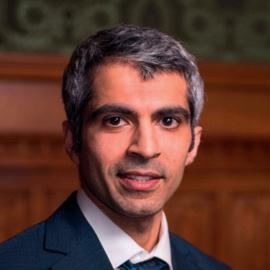
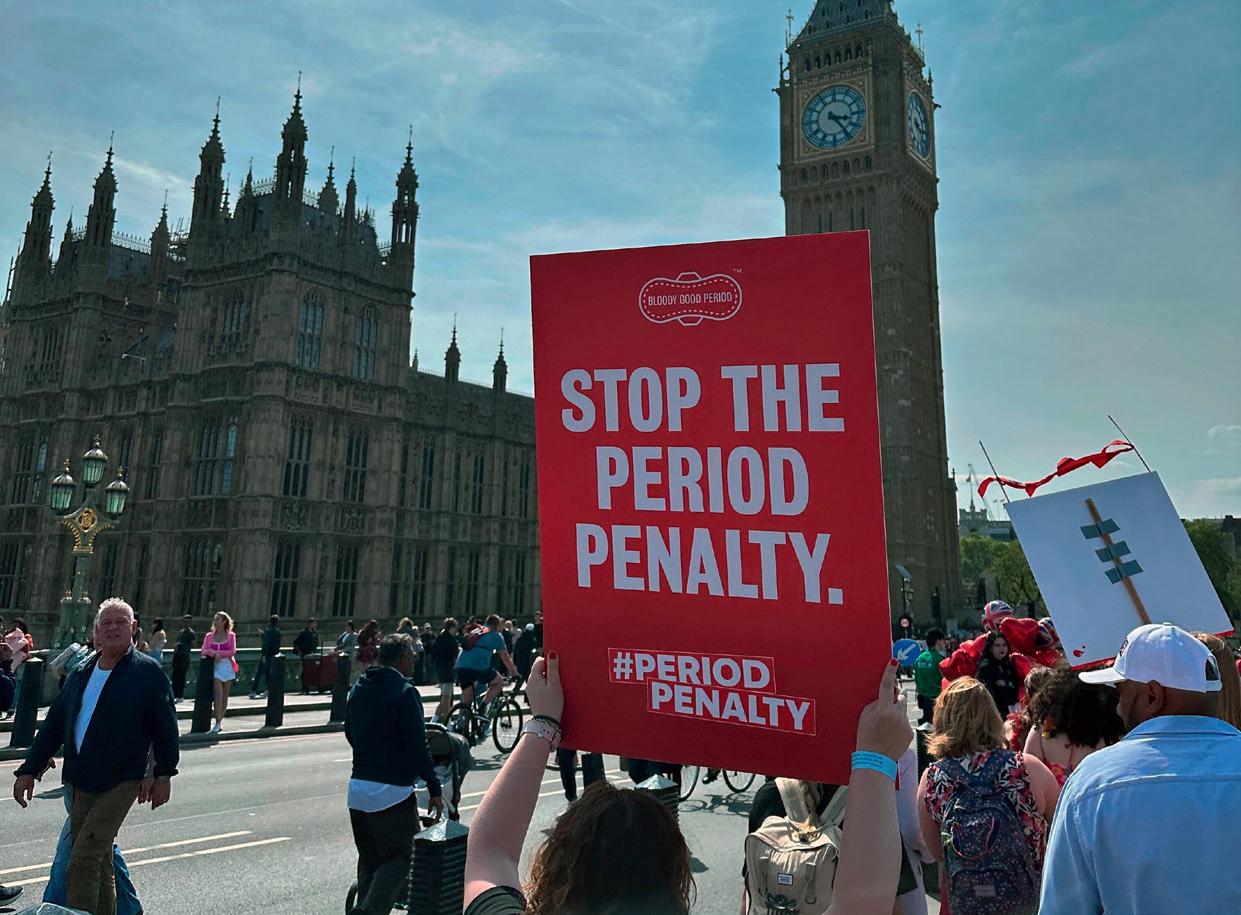
"Period poverty in the UK is becoming a bigger issue year on year. As the cost-of-living crisis impacts more people, and even more household budgets are under pressure, people are forced to make impossible choices between life’s essentials. And if you have a period, and/or dependants who do, that includes period products.
Since our inception in 2017, we’ve never seen such a need for support. This year alone we have distributed 90,000 packs of period products. Due to this unprecedented level of need, we currently have over 80 organisations on our waiting list, that we do not currently have the resources to help.
Our work has taught us that period poverty isn’t about a lack of access to period products – that’s just one part of the period puzzle. The real issue is much greater. The simple fact of having a period shapes people’s participation in their social, professional and personal lives, and restricts their ability to learn, work, exercise and move through public spaces. Periods are a penalty that everyone who menstruates pays with their finances, health, education and work – whatever their income status."
£10,000
Funding a project that includes events and public research with prominent decision-makers and thinkers from different political and professional backgrounds. The work aims to create cross-party conversations and momentum around social security reform in the 2020s.
£15,000
Supporting organisations across London to host events and undertake activities during London Challenge Poverty Week 2023, with the aim of increasing participation in the week. In turn this will increase the visibility of the reality of poverty in London and encourage positive discussion about challenging it.
£95,160
Funding a community organiser to develop and support groups of people with lived experience of over-indebtedness to campaign for change to the debt system. Debt Justice will build campaigns to tackle over-indebtedness in the capital and change policy at borough and national levels.
£145,000
Funding to increase the number of people who are properly represented in social security tribunals, to support decent living standards and ensure employment tribunals support better work. The work is helping to understand and remove barriers to referral, representing 450 more clients, protecting income and securing rights.
£112,000
Funding a salaried senior caseworker who is a senior solicitor to undertake litigation at the appeal tribunals for welfare benefits matters, legal supervision and a campaigner/researcher to lobby the council to bring interim relief to the most vulnerable who are struggling to cope with the cost-of-living crisis. The grant also covers associated administrative and operational costs.
Hounslow Citizens Advice
£94,000
A continuation grant for their Trust for London-funded specialist welfare rights advisor. Funding for this fulltime post is helping local people to manage the adverse financial impacts of the cost-of-living crisis, including spiralling mortgage costs.
Kingston Carers’ Network
£158,000
A grant to support the development of the organisation’s skill and expertise in providing specialist benefits advice to carers and those they care for. This work is helping to address poverty and inequalities so that carers can enjoy improved life outcomes, finances, health and wellbeing.
London Irish Centre
£131,000
Employing a legal advocate who can offer advice, support and representation to people appealing adverse benefit decisions. This includes work to support vulnerable people who otherwise may not have appropriate representation at tribunals, supporting people with redress schemes and raising awareness of this service with partners.
Vilma Espinoza, benefits advisor, Kingston Carers’ Network
"Unpaid carers are a community that often feels marginalised and unheard. Trust for London’s funding supports a specialist benefit advisor to provide comprehensive advice and advocacy to unpaid carers and those they care for. This improves life outcomes for carers and their families, both financially and in relation to health and wellbeing.

The advisor identifies benefit entitlements and helps carers/families apply, while also providing advice and representation throughout the appeal process. It is very sought-after support as carers often face complex challenges. There is little in the way of this type of assistance in the borough and, as such, the service is always busy.
Often carers do not know what benefits they are entitled to and how these interact with other benefits or sources of income. If a benefit for the person they care for is stopped, this can have a huge impact on the whole family. Carers are supported to understand the appeals process and helped to gather evidence for their case and to apply the legal rules to the facts with coherent and effective written representation. As attending tribunals can be very daunting, it is an important part of the advisor’s role to ensure carers are well prepared for the experience and feel supported, technically and emotionally, by the advisor.
This year to date, we have supported:
• 45 carers with advice
• 25 carers with applications
• 7 carers with appeals
Through this, we’ve achieved £90,696.69 confirmed additional income for carers, with several applications and appeals yet to be decided."
Centre for Independent Living
£70,864
This funding is to support work improving local social care policies and practices to increase independence and inclusion for local Disabled people. This funding will also support member-led policy work that aims for great participation from the local Disabled community through coproduction and engagement.
£135,000
Continuing a national campaign, coproduced with experts by experience, to challenge the use of the NRPF condition. The funds contribute towards salary costs of the campaign coordinator and policy and public affairs manager and the delivery costs of the NRPF Action Group activities.

£84,700
A continuation grant for the 4in10 network of campaigners working to end child poverty in London. It will enable the development of good practice in the voluntary and statutory sectors, build the sense of community within the network, and be led by experts by experience.
Aid
£64,500
Funding the salary of a part-time benefits advisor, working 21 hours per week, to continue delivering their benefits advice service for Disabled people in the borough of Hounslow.
The Food Foundation
£90,000
Towards the running costs of their Children's Right2Food campaign to ensure every young person in London and across the UK can access a healthy diet. This grant contributes to the salary of their children’s food team staff and the coordination and advocacy activities of their Young Food Ambassadors.

More Disabled Londoners than ever face poverty, inequality and exclusion. We fund Deaf and Disabled People’s Organisations to campaign for the systematic change we need for a fairer society.
Our £3m disability justice fund, in partnership with City Bridge Trust, is giving Deaf and Disabled People’s Organisations a stronger voice and more power to demand the systematic change we need for a fair society. The projects we fund are helping to diversify the disability sector and build the capacity of Deaf and Disabled People’s Organisations to campaign for change.
In London, 33% of families in poverty include a Disabled person and almost half of people living in poverty are Disabled or are living in a household with someone that is Disabled. of families in London that include a Disabled person are in poverty 33%
Total amount awarded
£1,098,655
Projects funded 16
Funding list
Action Disability Kensington and Chelsea
£64,000
Funding work to support a new generation of disability rights campaigners to sustain and grow Action Disability Kensington and Chelsea’s local movement.
Action on Disability
£120,000
Supporting Action on Disability’s Our Voice project. Having recently moved into a new purpose-built, fully accessible ground floor building, Action on Disability is welcoming even more local Disabled residents to their new Centre for Independent Living. This project will strengthen the voice of local Disabled people by building on the independent living and coproduction training sessions run earlier by Action on Disability, where 20 Disabled residents were trained to become coproducers, 35% of whom were people of colour.
Vivienne Isebor, managing director, ADHD Babes
ADHD Babes CIC
£15,000
Funding a sustainability and development project for ADHD Babes, to create, execute and evaluate a business strategy to ensure the organisation has a model that is sustainable and effective in supporting its community.
Alliance for Inclusive Education (ALLFIE)
£98,250
This grant is for ALLFIE’s core costs (including staffing and core work) supporting their everyday activism with London-based Deaf and Disabled People’s Organisations to disrupt systems of oppression that are harming Disabled people and communities through the continued practices of segregated education.

"ADHD Babes is run by us and for us, with all members of our team being from our community. We aim to empower and encourage all members to build peer support networks, share lived experiences and embrace their neurodivergence as a community.
By creating a community and providing tools, learning and healing spaces, we want to inspire people to redefine how we understand ADHD – to tackle its difficulties and use its strengths. We’ve created an accessible platform and safer spaces for us to connect, learn and break down the barriers that restrict our community from gaining and understanding a diagnosis of ADHD.
In doing this, we want to help to create a society that embraces neurodiversity. We’re raising awareness and educating people on the truth and reality of how ADHD affects neurodivergent people, and how best to support them."
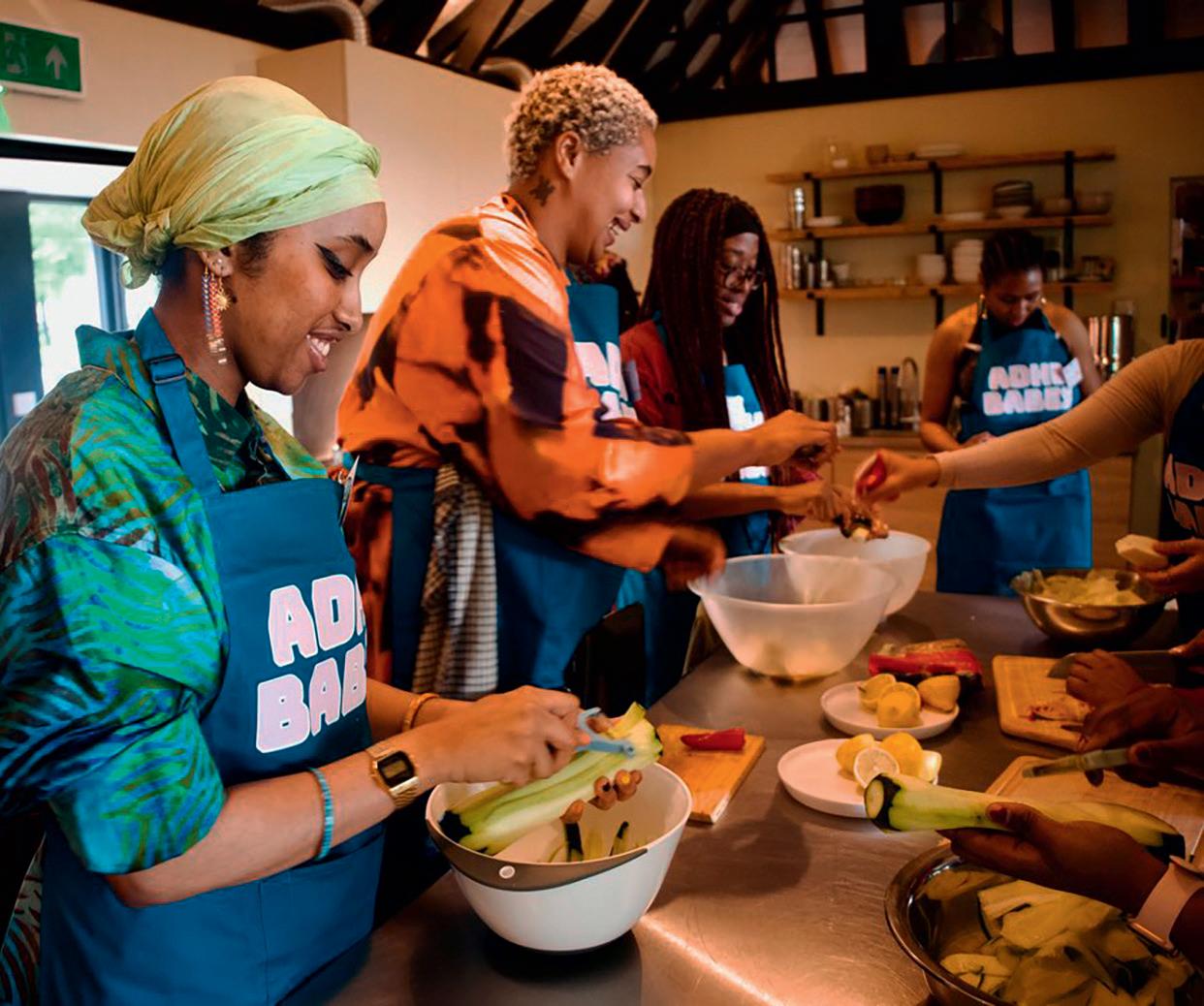
BME Volunteers CIC
£18,000
A grant to fund 12 workshops to build organisational capacity and knowledge sharing among Black-led Deaf and Disabled People’s Organisations in South East London.
Breaking Out of the Bubble
£15,000
Supporting a pilot project which will help more people with learning difficulties be heard and in control of the support they receive.
Bromley Experts by Experience CIC
£114,000
A grant towards core costs to support the organisation to implement an effective, secure and accessible database system to allow it to engage with members and service users more systematically.
Deaf Ethnic Women’s Association
£32,380
A grant to develop DEWA’s website and social media platforms, so that they can be used by Deaf women for self-advocacy.
£120,000
Funding work to build Deafinitely Theatre’s CEO’s capacity to campaign and influence, and expand its social impact outreach programmes.
£19,650
A grant to trial using a new mobile coffee-bike hub at protests as a way to reach out to more Disabled people and encourage them to get involved in campaigning.
£82,000
Supporting research into the intersection of art and disability justice and a training programme to equip Disabled campaigners with art skills for social change.
£119,800
A grant to build the capacity of Hear Us to coproduce campaigns with a diverse range of people with lived experience of mental ill-health, with the aim of improving access to public services.
£29,000
Funding a project to upskill volunteers within Mobility Help for Disabled UK and Nigeria Disabled People Association UK so that they can work with members to support them to self-advocate and campaign for their rights as Disabled citizens of London/Britain. Volunteers and members will be supported to take part in campaigning, outreach work, influencing and empowering members assert their right to access services and have a stronger voice in their local communities.
£119,200
Strengthening People First’s governance, management and networking, and improving its communication and connection. People First will create a London Campaign Network of self-advocates with learning difficulties to share campaigns and identify opportunities to collaborate on specific campaigns together as appropriate.
£14,875
Funding a pilot project to develop linguistically and culturally appropriate information to support Deaf BSL users to assert their rights under the Equality Act. It will also provide information to help Deaf people challenge the most common access refusals reported by Deaf communities.
£117,500
A grant to strengthen Wish’s campaigning power by funding a campaigns and communications manager position. This work is helping diverse women with long-term mental health needs to build a stronger shared identity, mobilise more effectively, and increase reach, advocacy and influence. It will also strengthen Wish’s capacity to campaign, rebuild its voice within the sector and strengthen its user-involvement policies to extend inclusive practice.
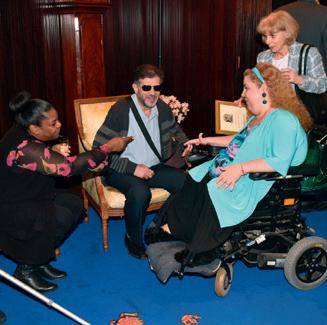
The cost of housing fuels poverty in the capital. Many Londoners do not have access to genuinely affordable, decent quality and secure housing. Creating more homes is essential, as are places that create a sense of community, where people can feel safe and can participate in their local areas. The wider environment is also vital, from the air we breathe to the open and green spaces Londoners have access to.
We fund advocacy work, housing legal advice, action research and capacity and skills building.
Total amount awarded
£1,226,500
Projects funded
13
"From its foundation, High Trees was set up to make sure that all our services are based on understanding the needs of the communities we serve and co-designed with our users. There are mechanisms in all of our services and projects, however big or small, that ensure user voice is central to everything we do.
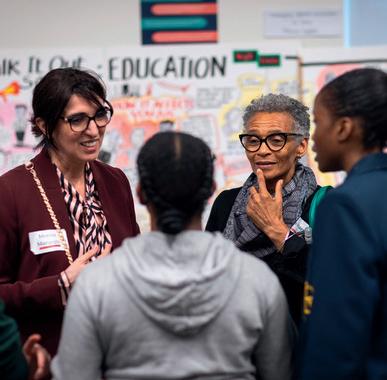
High Trees is now working to establish a network of locally rooted organisations with an interest and expertise in community-based research that exists to ensure that research taking place in Lambeth is ethical, of high quality and has the needs and interests of communities at its core. This network will develop meaningful models and approaches for research locally (such as peer research and participatory action research) to ensure that community members directly benefit from research undertaken."
Cambridge House and Talbot
£102,000
This grant funded research into London’s shadow private rented sector. This work is looking at the contribution that letting agents play, how the regulatory framework and enforcement activity impact private renters’ exposure to abuse of their tenancy rights, and what changes are needed in public policy/ practice and resourcing.
£86,200
We funded the salary and associated costs of the organisation’s existing housing paralegal. Their key role is to work with the housing solicitors at Lewisham Law Centre on casework and representation, building capacity to provide a holistic approach to the provision of housing.
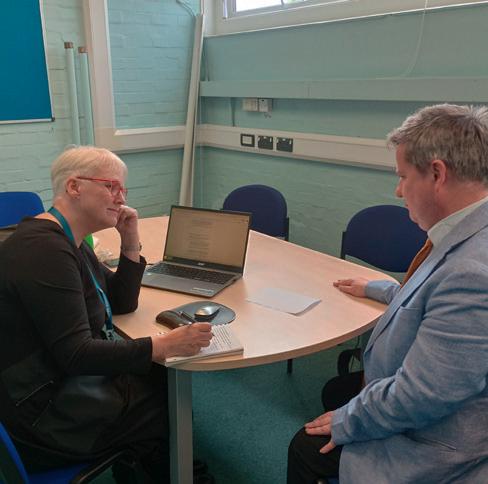
Global Action Plan
£100,000
Funding a project to bring new voices, greater urgency and a higher level of ambition into the 2024 London elections debate about air pollution. They will do this by organising, supporting, campaigning and mobilising with those most exposed to air pollution and who also face intersecting challenges.
Housing Justice
£71,000
A grant to develop Housing Justice’s Hosting project and cover the salary of a hosting project officer. Housing Justice will run an action learning project with guests and hosts to identify best practice in hosting while continuing to deliver this vital service and grow wrap-around support for each guest.
Just Space Network
£60,000
Funding to engage the services of a new person to take over coordination and communication roles from the current coordinator (freeing him for project work), aiming to transform internal and external communications to increase the impact of policy work and engage more with the dozens of groups they work with.
Latin American Women’s Aid
£92,400
Funding further progress of the Women Against Homelessness and Abuse (WAHA) project: to expand on advocacy and campaigning and strengthen peer-to-peer practices and knowledge in the sector, based on evidence gathered through the specialist legal advice for Black and minoritised communities women survivors of VAWG facing challenges to access safe housing.
Legal Action Group
£90,000
Funding the development of a comprehensive model of housing training and resources which reach wider audiences. This project will deliver legal knowledge, information and training in ways which are targeted, more accessible and meaningful, and provide an online blog and resources function.
London Renters Union
£145,200
Funding to consolidate the three new branches Trust for London funding has helped to establish, to grow further by setting up one to two branches and to implement the strategy agreed by members to ensure that all Londoners have safe, affordable and secure housing.
£15,000
This grant helped purchase data on the operation of London’s property market; in particular, trends in the types and locations of property that have typically been made available to rent for homeless and/or low income households.
The Centre for Theology and Community
£80,000
Funding to progress a pioneering and replicable community-led affordable housing programme on three pieces of land around St George-in-the-East Church, Shadwell. The grant ensures that local people lead the campaign and that this systemic change in housing integrates with other local action on the immediate cost-of-living crisis.
The Poverty and Environment Trust
£40,000
Funding staff time and resources to continue PET’s extensive, London-wide public engagement and advocacy work to build the level of borough council and MP support for the Local Electricity Bill, which is vital to help see it made law.
Town and Country Planning Association
£249,000
A grant to strengthen support for people and communities, particularly those in disadvantaged parts of the city and from underrepresented groups, to better engage with the planning system, in order to positively influence change in the neighbourhood they live and/or work in.
Your Place (London) Ltd
£95,700
Continuing to fund a resident engagement officer promoting user voice in partnership with Newham Citizens. This work is influencing the provision of affordable accommodation, representing people with lived experience of homelessness and reconfiguring community organising consultation mechanisms within Caritas Anchor House in Newham.
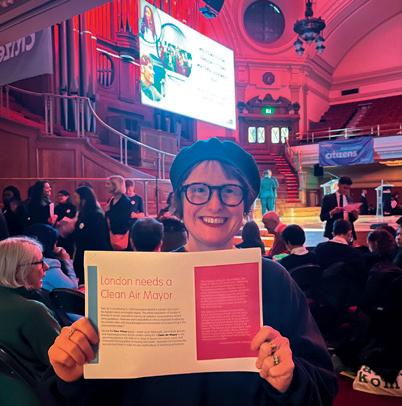
Catherine Kenyon, head of programmes, Clean Air, Global Action Plan
"More than 4,000 Londoners die prematurely each year from causes related to air pollution with deprived, Black and brown communities suffering disproportionately from the poorest air quality.
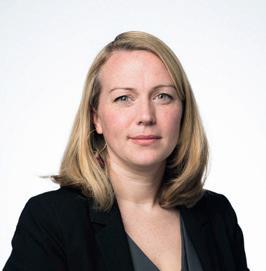
The Clean Air New Voices project aims to empower individuals and organisations who represent the communities most affected by air pollution to advocate for clean air in our capital. Global Action Plan has equipped eight campaigners with the skills and knowledge they need to effectively advocate for clean air policies and drive systemic change. The voices of affected communities were amplified in the run up to the 2024 London Mayoral election. Campaigners presented their calls for fairer, bolder policy through a manifesto and advocacy activities, including hustings events and targeted media messaging."
“The changes outlined in the manifesto offer a light of hope for our community, addressing the clear environmental injustices we face.” – Moussa Sylla, community campaigner, Haringey.
Find out more about the Clean Air New Voices project
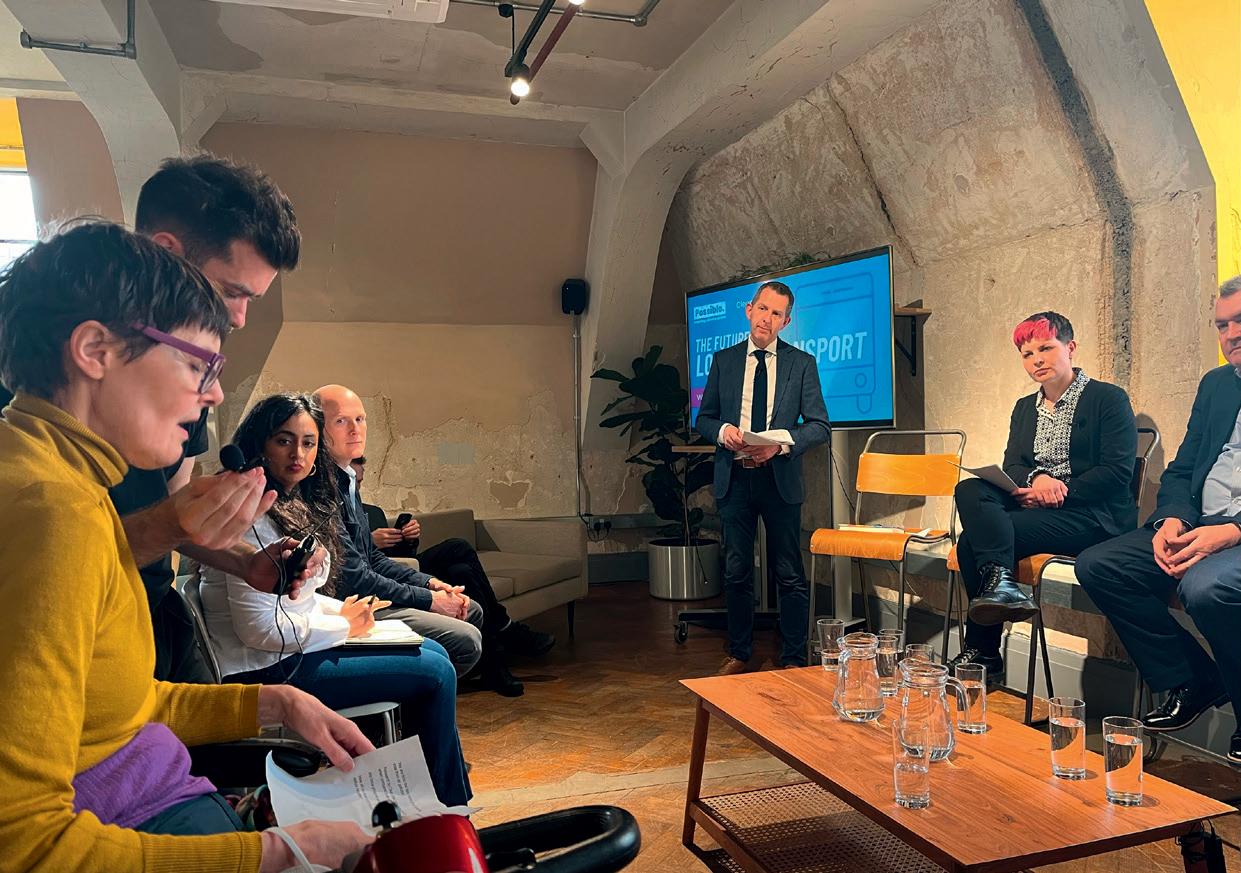
London is an international city that attracts people from all over the world. Our capital, and our country, has a long history of migration, contributing to our rich and diverse history, and our wealth. Many new Londoners do not need any support, but some are disadvantaged and living in poverty. Migrants without legal status are particularly vulnerable to exploitation. We want all Londoners, new and established, to be able to participate fully in London life. We fund specialist legal advice and advocacy work.
Total amount awarded
£1,691,242 Projects funded 18
Sophie Wickham, executive director, Action for Refugees in Lewisham
"Trust for London has provided Action for Refugees in Lewisham with multi-year funding for our immigration project in partnership with Southwark Law Centre that enables undocumented families in South East London to regularise their immigration status and rebuild their lives.

This funding impacts the most vulnerable people we work with – those ineligible for legal aid and living in extreme poverty. Trust for London understands the necessity and intensity of this kind of work, and appreciates the value of partnership between specialist legal providers and grassroots charities with the trust of their communities. As a result, we have not only improved the lives of families through this representation, but extended the reach of our other services since people who were previously stuck in food banks for years now have entitlement to work or benefits, and those places can reach more people at a time of crisis. Trust for London is a refreshing funder to work with as their staff have an in-depth understanding of the issues and are experts in their field."
Funding list
Action for Refugees in Lewisham
£101,400
Funding the development and expansion of a joint project with Southwark Law Centre. This is delivering crucial additional legal capacity to ensure particularly vulnerable and hard to reach migrants and asylum seekers in southeast London can resolve their complex legal issues and sustainably escape poverty.
Asylum Aid
£57,700
Funding the Statelessness project, including the salaries of the project supervisor and caseworkers with statelessness cases. This enables them to deliver legal representation, provide training sector-wide and drive systems change. Funding also covers disbursement costs to enhance their legal representation, and essential organisational costs.
Barnet Citizens Advice Bureau
£141,900
A grant to cover salaries and associated project and support costs of an employment solicitor, employment caseworker and OISC level 3 immigration caseworker. This is helping to provide free, specialist advice, casework and representation on employment and immigration issues and second-tier advice to the local VCS.
Bexley Citizens Advice Bureau
£70,056
Three-year funding for a part-time level 3 immigration advisor subcontracted from Lewisham Refugee and Migrant Network – providing advocacy, advice and representation to Bexley residents with insecure immigration status (especially no recourse to public funds, NRPF, designations), therefore enabling settlement with all its financial, social, family and emotional benefits.
Centre for Social Policy Studies
£30,000
Funding to inform government policy regarding no recourse to public funds (NRPF), by providing research and advocacy on this issue. The team will seek to build up evidence of the problems caused by NRPF and subsequently inform policy, by sharing findings with key stakeholders and policymakers.
Citizens Advice Merton and Lambeth
£96,800
Supporting the continued employment costs of the immigration advisor in the successful immigration partnership project, providing immigration advice and advocacy to residents across five local authorities including those with no recourse to public funds.
Hackney Migrant Centre
£25,000
A grant to provide high quality immigration advice at OISC level 3.
Here for Good
£152,000
This grant covers the employment of a full-time caseworker – an accredited immigration lawyer with extensive experience – who is based at the AIRE Centre carrying out legal policy work and providing free advice under the EU Settlement Scheme to in-need Europeans in London.
Hibiscus Initiatives
£59,000
A grant contributing to the salary of an anti-trafficking policy officer who will continue to raise awareness of, and campaign to support migrant women who have been trafficked. They will also work directly with migrant women to help them to use their voices to campaign for change.
Borimir Totev, EU Londoners communications officer, New Europeans UK
"We are extremely grateful for the ongoing support from Trust for London, which has enabled us to grow as a migrant-led organisation, working closely with some of the most marginalised groups of EU citizens in London. Your support in 2023 enabled us to work closely with five community groups who assist the most vulnerable EU citizens to ensure their users have the correct status and can live, work and engage easily in their local community.

It has also allowed us to help thousands of individuals with leaflets, produced in more than ten community languages, helping them to navigate their life in London with a new, entirely digital immigration status, and to feel empowered as active citizens.
With Trust for London’s help we have been able to reach more than 60,000 people across our social media platforms and over 7,000 people via our website.
Last but not least, Trust for London support enabled us to work with local authorities to improve their online information for people struggling with immigration issues locally."
Latin American House
£72,454
Covering the costs of an immigration solicitor’s firm to provide specialist immigration advice, including some core costs and interpretation costs.
Migrant Voice
£103,000
Support to build upon their previous learning to strengthen a migrant-led campaign for a fairer visa and settlement process, including more migrants speaking out and campaigning for a fairer immigration system that does not force families into poverty or make profit from their hardship.
New Europeans Association Ltd
£125,000
Building on their existing approach, this grant is funding work to strengthen the capacity, awareness and advice skills of community groups/actors, the voluntary community sector, and local authorities, supporting vulnerable EU nationals engaging with the EU Settlement Scheme over the next three years, working specifically with partners in Southwark and Lambeth.
Newham Community Renewal Programme
£112,932
A grant to support salary costs for two part-time roles, an immigration advisor and a refugee and migrant support worker, to support vulnerable and destitute migrants in Newham. These roles provide crisis support, social integration, financial advocacy and free immigration advice and casework to support individuals towards settlement.
Leila Zadeh, executive director, Rainbow Migration
"LGBTQI+ people face unique and complex challenges when going through the asylum system such as having to prove they are LGBTQI+ and a lack of knowledge among lawyers about this type of asylum claim. The legal aid crisis also acutely impacts LGBTQI+ people because the complex and time-intense nature of their asylum claims makes them less financially viable for legal aid lawyers.

Trust for London’s funding is crucial in enabling us to support LGBTQI+ people seeking asylum to overcome these barriers so that they are better equipped to present their asylum claims and can secure their futures here. We’ve also been able to carry out influencing work to improve policies and practice so that they meet the needs of LGBTQI+ people seeking asylum."
Project for the Registration of Children as British Citizens (PRCBC)
£152,000
A grant to fund the salary of a full-time senior solicitor and litigator/CEO, running complex and strategic casework on children’s British citizenship rights. The solicitor will also support campaigning and advocacy work to change barriers in law, policy and practice to children’s registration, plus training and awarenessraising for professionals.
Rainbow Migration
£133,000
Supporting unique immigration advice on LGBTQI+ asylum and policy work to improve the asylum and immigration system for LGBTQI+ people. The grant is going towards the salaries of a legal officer, a legal and support services assistant and a legal and policy director.
Refugee Action Kingston
£99,000
A grant to continue to provide expert, quality, OISC and AQS accredited immigration and legal advice to asylum seekers in desperate need in Kingston and South West London. Legal aid is currently overwhelmed with the number of people needing immigration advice and Refugee Action Kingston can pick up complex cases.
South London Refugee Association
£80,000
A grant to develop SLRA’s Community Leaders programme including contribution to the cost of immigration advice delivered through community settings and training and support for local migrant individuals and communities so they can organise to influence the local and national decision-making that affects their lives.
The Passage
£80,000
A continuation grant towards the salary costs of The Passage’s in-house immigration solicitor, to provide advice and support to people experiencing or at risk of homelessness regarding immigration issues.
The gap between rich and poor is more striking in London than anywhere else in the UK.
Our capital is home to more billionaires than any other city in the world but 25% of Londoners are living in poverty.
We know that this gap is damaging for everyone, but especially for those struggling on the lowest incomes. That’s why we fund research and projects demanding a fairer London for all. of London’s wealth is held by the city's bottom 10% of earners 0%
Total amount awarded £164,500 Projects funded 2 of London’s wealth is held by the city's top 10% of earners 44%
Funding list
Fair Tax Foundation Limited
£45,000
Funding activity to further raise standards of tax conduct among Greater London businesses and public institutions and to build awareness of the positive role tax plays in our economy and society, with a particular focus on pan-London collaboration, embedding practice and tackling ‘dirty money’ alongside fair tax.
The Equality Trust
£119,500
Funding to continue work to facilitate local groups who can influence politicians to implement measures that reduce inequality. Specifically, this work is focusing on the adoption of the Socio-economic Duty across three London boroughs, raising awareness among diverse community groups and building their capacity to mobilise, influence and campaign.
Anna Powell-Smith, director, Centre for Public Data
"We’re a non-profit that works for stronger public data, particularly to help civil society and campaigning organisations. We’re especially interested in housing data, and how it can support a fairer, safer housing market. Finding out who owns land and property in the UK can be difficult – but understanding property ownership can help campaigners working on a whole host of issues.


Trust for London has supported us to develop research and experimental tools using new transparency data about property ownership, to support people working to improve housing in the UK. As part of this, we’ve been working on a tool to explore corporate property ownership."
Civil society has a long tradition of advocating for social change, and that has led to great progress. We want to keep supporting people to build the skills to influence government, policymakers, media and the general public, in order to tackle the root causes of poverty and inequality.
The skills we believe are crucial are campaigning, community organising, gathering evidence and strategic communications. Central to this is the amplification of the voices of those experiencing the problems first hand. Development of strategic communications is also critical. Too often the messages we use do not connect with the audiences we are trying to reach. Sometimes they even damage the causes we are supporting.
Better understanding of public attitudes on the issues outlined in our funding programmes is also vital, and we are working to improve skills in this field. This can also look like work that enhances the capacity of civil society to influence policy and decision-making in our priority areas.
Total amount awarded
£826,300
Projects funded 7
Matthew Walsham, policy lead, Partnership for Young London
"We’ve got a group of five peer researchers. They go out, they design the questions from their lived experiences. But actually, the power of it is they go out and get better access into schools and into youth clubs. They speak to people that we wouldn’t have access to. They get a decent sample of 500 people, and then they’re armed to go back to decision-makers and go: 'This isn’t just our five opinions. We’ve actually done the work, the same work that you guys would do in a data and intelligence team. These are our findings. And we have a mandate, essentially.'

You have to get young people involved at every stage – from the recruitment phase, in the training and analysis, even on things like the report design and what colours it’s going to be. The whole point of peer research is to create a sense of agency and ownership over the process. How can we make people feel at every point like they have control over the research – that it’s authentically theirs? If we can do that, they will be more engaged and it will be a better piece of work."
Tash Oakes-Monger, programme manager, Trans Learning Partnership
"There’s a real lack of data-driven insight into the lives and experiences of Trans and Non-binary communities. Trans Learning Partnership is currently undertaking data analysis from community research. The work has a participatory approach, integrating solution-building and sharing accessible information with the communities involved."

Children England
£153,000
The funding is for 4in10 to work towards its aim of a child poverty free London. They do this by building capacity among members to tackle poverty more effectively in their communities; by increasing campaigning activity in collaboration with members and people with lived experience of poverty; and by growing the network.
£150,000
Somali Organisations
A grant to cover the core salary of the director’s post to sustain and further develop the capacities of Somali voluntary and community organisations in London and advocate on the needs of the Somali community.
IMiX
£92,000
This funding is to support strategic communications work with grassroots migration organisations in London as well as develop a lived experience Storytellers Network, enabling the team to increase the involvement and skills of people from a migration background in media, campaigning and communications work.
Interlink Foundation
£79,500
Work to strengthen the voice of Orthodox Jewish community groups and thereby narrow inequalities resulting in poverty and deprivation. Funds will cover staff to support organisations to advocate and campaign for equality and access to services, plus training to help groups frame issues and communicate with public and policymakers.
£123,000
Funding to build creative organising hubs for Polish/ Eastern European women and gender nonconforming people in two or more underserved London boroughs. Through direct service, leadership development, creative interventions and campaigns rooted in solidarity, the work will deeply engage 1,500 individuals as social change agents, and reach thousands of others.
Superhighways (c/o Kingston Voluntary Action)
£110,000
Part-funding for two data support advisors to provide advice, training and one-to-one support, enabling small London charities and community groups to better collect, analyse and present data to tell the stories of their work, raise the voice of communities and be in a stronger position to influence change.
Life Community Development Trust
£118,800
A grant to cover the salary of the communications and outreach officer, continuing work that is at a critical point of development and which, if lost, would undercut resident voice and campaigns within Thames View and Barking Riverside wards of Barking and Dagenham.

During 2023 we made a small number of grants outside our core programme areas. As a responsive funder this allows us to provide strategic support where needed and to support work that makes a strategic contribution to our overall aims.
Total amount awarded £657,884
Projects funded 14
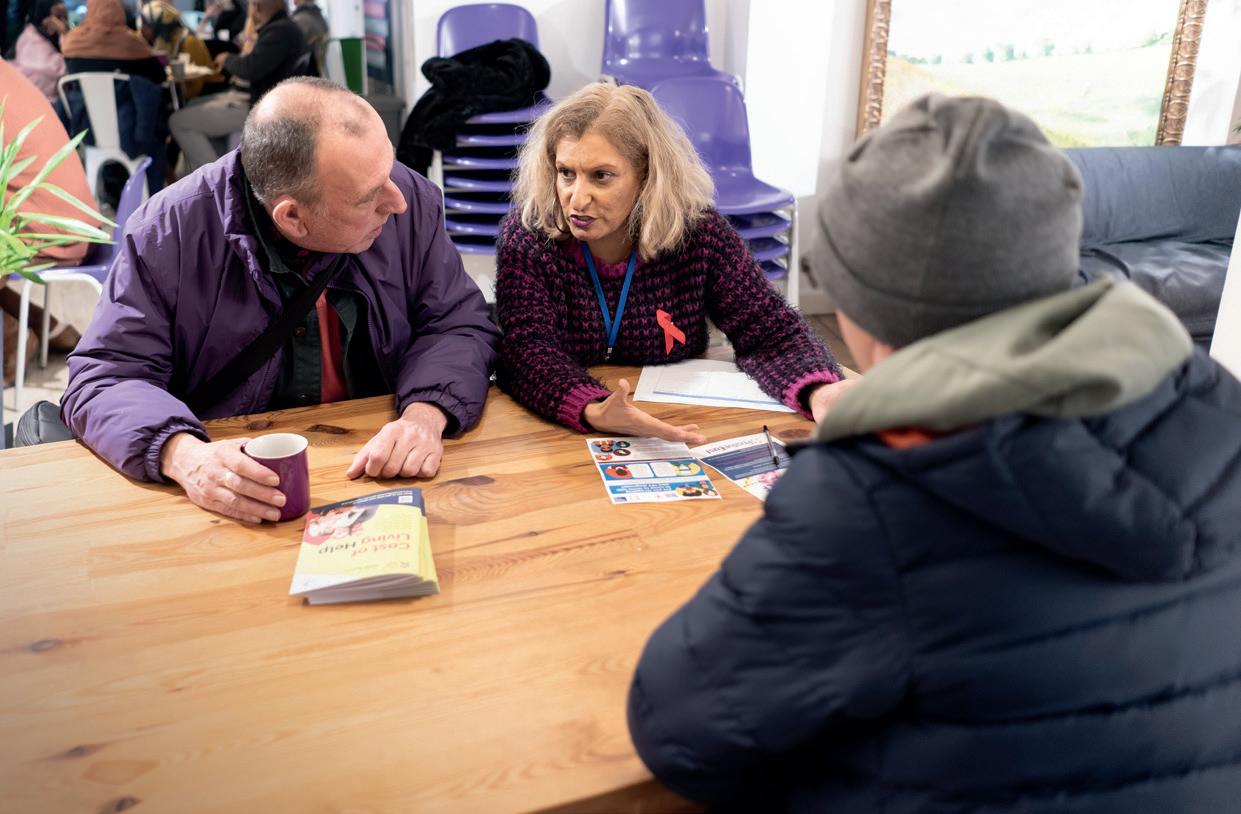
The Citizenship and Integration Initiative funds secondments to the Greater London Authority for people working in civil society organisations. From there, they can help Londoners born outside of the UK play an active part in their community.
The Initiative is a partnership between Trust for London, Unbound Philanthropy, the Paul Hamlyn Foundation, City Bridge Trust, the Pears Foundation and the Greater London Authority and was founded in 2016.
East European Resource Centre (EERC)
£25,140
Funding the salary for a senior staff member to be seconded part-time to the Greater London Authority, where they are developing work to address and prevent migrant labour exploitation.
Focus on Labour Exploitation
£57,400
Funding a secondment from a civil society organisation to join the Mayor’s social integration team to support existing work on tackling migrant exploitation in the workplace and develop new work on victims of trafficking/modern slavery.
Kanlungan Filipino Consortium
£27,970
Funding a secondment to the Greater London Authority (covering salary, national insurance and pension contribution and contributing to the organisation’s core and management costs).

Total amount awarded
£110,510
Secondments funded
3
“The CII has provided a model which enables a much greater and closer sharing of knowledge and skills.”
Debbie Weekes-Bernard,
deputy mayor for social integration, social mobility and social justice, Greater London Authority
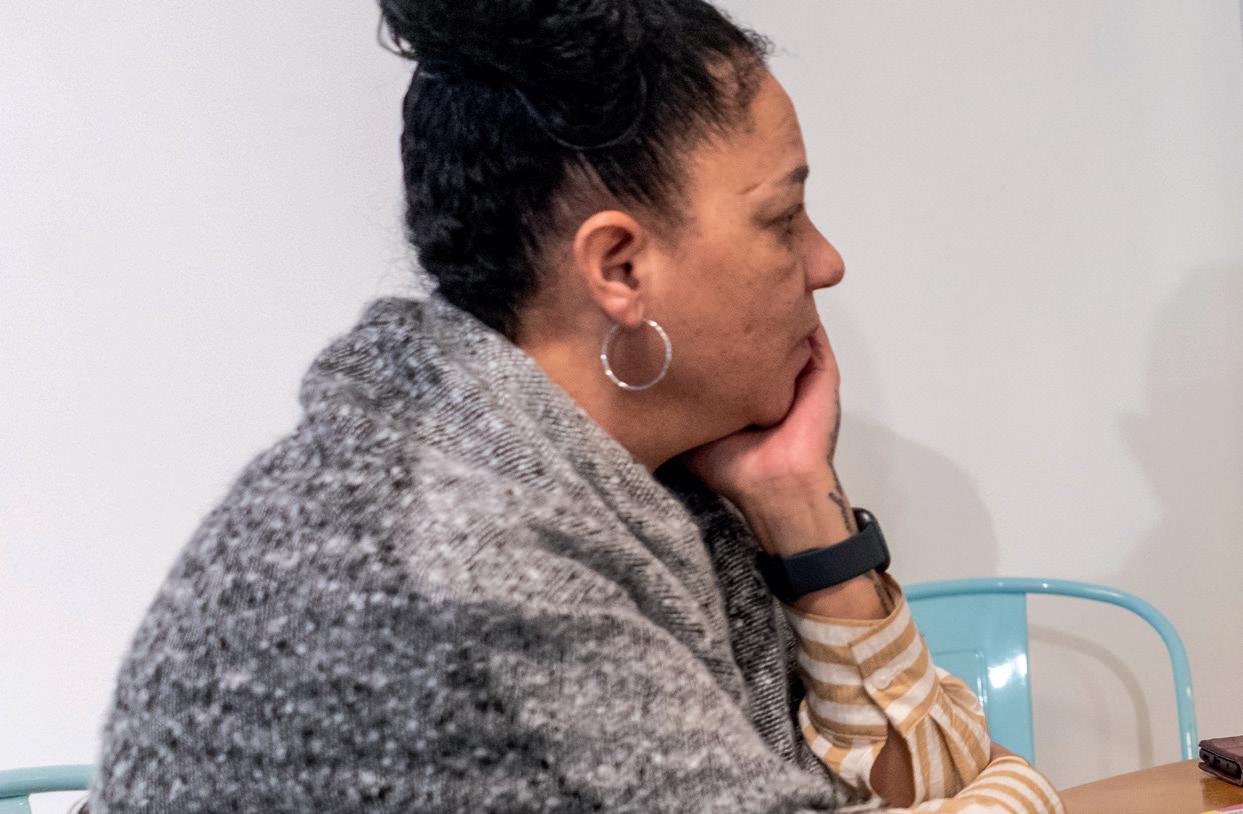
Funding list
Action on Disability
£71,759
Funding to cover the salary of a housing campaign project lead and the development of campaigning and engagement functions for 15 months, run by and composed of local Disabled residents and supported by Action on Disability. The project will operate in Hammersmith and Fulham and focus on local housing issues.
Advice UK
£69,000
Supporting work to strengthen independent community-based advice services in London, focusing on smaller organisations serving minority ethnic and marginalised communities. The grant will support groups and organisations to improve the quality of the social welfare advice they give, increasing capacity to combat poverty and respond to cost-of-living pressures.
Civic Power Fund
£40,000
A grant to trial a new community organising response to the cost-of-living crisis in five key geographies across the UK, including a core focus on London. This is centred around some of the 6,000 local organisations running Warm Welcome Spaces.
Civic Power Fund
£65,000
Supporting a project to build power among low-income communities in London via Warm Welcome Spaces.
Liberty – National Council for Civil Liberties
£50,000
Funding a flagship coalition campaign to defend the Human Rights Act and protect and strengthen the UK human rights framework from multiple threats. The grant is investing in long-term work to change public attitudes to rights, so public support ensures they can’t be challenged in future.
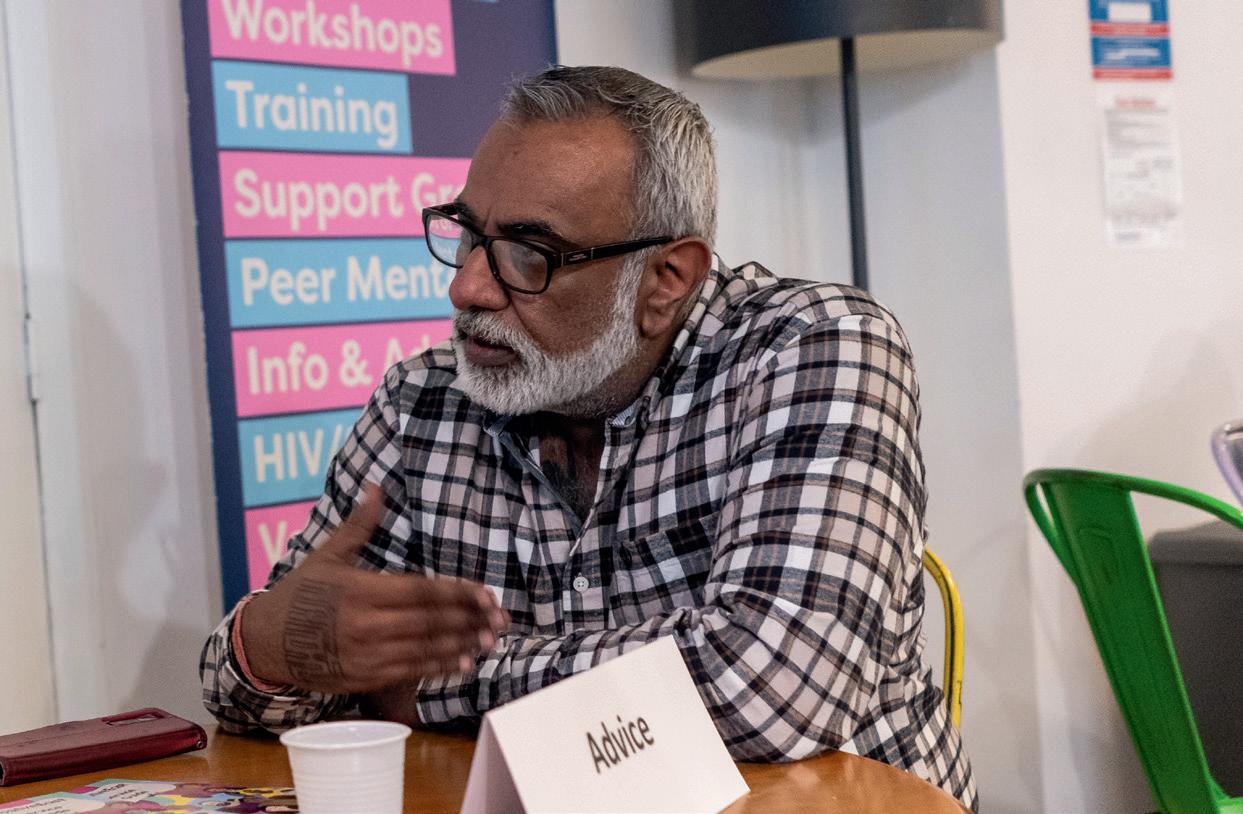
New Economics Foundation
£13,500
A grant to run deliberative sessions with Camden residents to help develop alternatives to the use of conditionality and sanctions in the benefits and employment support system. Approaches will focus on fostering genuine engagement rather than relying on simply expecting compliance with expectations.
Real DPO Ltd
£73,900
Covering the salary costs of a project coordinator, communications manager and engagement and coproduction facilitator to deliver a focused research and information campaign on the inequalities Disabled people in Tower Hamlets face in the private housing market. It will also fund work to coproduce solutions to these inequalities.
Richmond Aid
£75,215
Funding a campaign officer to work 21 hours per week over two years to progress the accessible housing campaign in the London Borough of Richmond upon Thames. The work will include an audit of the current position and developing user involvement methods.
The Centre for London
£16,000
Providing major sponsorship of Centre for London’s annual London Conference – the preeminent annual event for London’s leaders to discuss and debate the capital’s future.
The Centre for London
£20,000
Supporting the Centre for London to use its research expertise and relationships to improve the lives of communities experiencing poverty in London, and also to support local groups to access the London policy space. Funding will also allow the Centre to improve its financial sustainability in 2024.
We provide social investment to businesses, charities and organisations with a social mission, alongside our general grant making. This type of investment means we can support a wider range of projects and organisations tackling inequality in London.
Total amount awarded £805,000
We invest in charities and social enterprises based in London that are looking to grow and become more sustainable.
Our social investment programme is designed to:
• help move frontline organisations and enterprises that are tackling poverty and inequality towards longer-term sustainability.
• demonstrate that social investments can offer good financial returns while also achieving positive social outcomes.
Funding list
Ella’s Homes
£160,000
A secured loan to purchase a two-bedroom flat to support female survivors of trafficking and exploitation.
Jerk Grill
£60,000
An unsecured loan to provide capital to refurbish this restaurant to enable it to commence trading and deliver social impact through delivering foodbank sessions and cooking classes.
Shpresa
£295,000
A secured loan towards the purchase costs of premises that will strengthen and safeguard work with vulnerable Albanians in London.
Youth PWR Network CIC
£40,000
An unsecured loan of £30,000 and a £10,000 grant to provide working capital to strengthen the Youth PWR Network to deliver its training and employment focused work with Londoners through its PWR magazine.
House of St Barnabas
£250,000
Working capital to strengthen the House of St Barnabas to deliver its employment-focused work with Londoners impacted by homelessness. (Unfortunately, the charity experienced numerous financial pressures and was unable to turn the business around, and in early 2024 the House of St Barnabas trustees decided to begin the process of winding up.)
Investing in a fairer funding landscape
Vested is a £300,000 participatory social investment programme, funded by Trust for London. The programme is investing in organisations that provide good work for young Londoners (16–25 years old) and aim to tackle poverty or inequality in London. Investment decisions are made by a panel of six young Londoners with their own experience of unemployment, who then submit their funding recommendations to Trust for London’s board. The project commenced in 2023 and funding decisions are expected in 2024.
“I know from experience how challenging unemployment is, as someone who has learning difficulties and caring responsibilities. I believe that investment can help underrepresented groups to thrive, and I joined Vested because I’m passionate about tackling social injustice.”
Angelique, young carer and panel member
“We’re working with people with first-hand experience to help create a better and fairer funding landscape. The input from young people affected by long-term unemployment to the different stages of the application and decision-making process for Vested is invaluable. We’re excited to see the organisations that get chosen by this process directly involving young people.”
Luke
Kavanagh, social investment manager, Trust for London
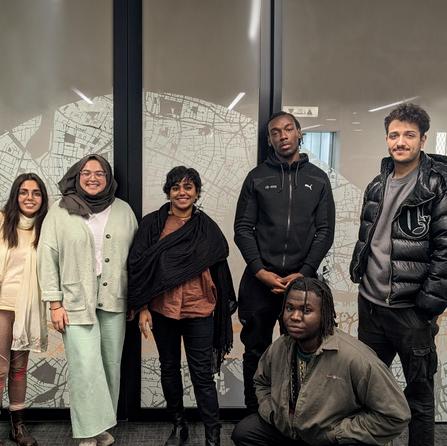

Trust for London is comprised of three funds: the Central Fund, the City Church Fund and the Common Investment Fund, which is a pooled investment fund to invest the assets of the Central Fund and City Church Fund.
The objectives of the Central Fund are any charitable purposes, other than the advancement of religion, which are directed to the benefit of poor inhabitants in the area of benefit. The Central Fund aims to reduce poverty and inequality in London through grant making to the voluntary and community sector and others, as well as by using its own expertise and knowledge to support work that tackles poverty and its root causes. The Trust considers that the relief and prevention of poverty is of public benefit to all.
The objectives of the City Church Fund are the advancement of religion for the benefit of the public in accordance with the doctrines of the Church of England; the repair, restoration and maintenance or preservation of churches; the augmentation of clerical stipends; and the giving of theological instruction to persons preparing for Holy Orders.
The purposes to which the City Church Fund has to be applied are essentially religious. The monies have to be distributed in the following proportions: one third is given to the City churches within the City of London and two thirds to the six dioceses of the Church of England, in whole or in part within the area of benefit, in such proportions as are determined by the Church Commissioners.
The Trustee confirms that it has had regard to the guidance contained in the Charity Commission’s general guidance on public benefit when reviewing the Trust’s aims and objectives and in planning future activities and setting the grant making policy for the year.
Trust for London does not undertake any fundraising activities and does not use any professional fundraisers or ‘commercial participators’ or any third parties to solicit donations. We are therefore not subject to any regulatory scheme or relevant codes of practice. We have not received any complaints in the current or prior year in relation to fundraising activities, nor do we consider it necessary to design specific procedures to monitor such activities in the current year or in the prior year.
The focus of 2023 was planning and developing our 2030 funding strategy, which will be launched in the first half of 2024. As a result, our funding during 2023 focused on continuation funding for existing projects. We gave out 115 grants in 2023: there is more information on the achievements of our grant making in the annual review section of this report.
We also developed refreshed organisational values which reflect our team culture, guide our work and inform the decisions we make. These are:
• We are thoughtful and courageous.
• We use our power with care.
• Relationships are at the heart of what we do.
• We are straightforward and transparent.
• We are always learning.
2023 also saw some big changes in our core business systems: we implemented a new grants database and a new finance system.
Looking forward to 2024, we are excited to launch our new funding strategy and open up to new grant applications. We are also reviewing our investment policy and developing a net zero strategy. While we have to operate with a tighter budget due to the impact of the economy on our endowment values, we are confident that we have a clear mission, strategy and goals to make an impact with our funding.
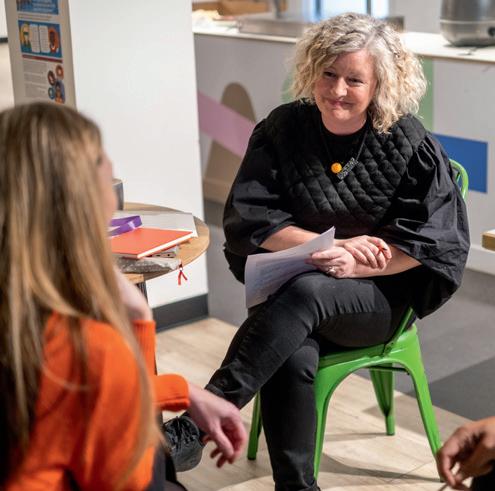
Trust for London’s income comes mainly from its investments in property and equities. In 2023 investment income was lower than in 2022 due to lower grant income. 2022 had an unusually high level of grants receivable relating to the racial justice fund and disability justice fund. All other areas of income increased from 2022.
The economic conditions improved for the Trust’s endowed funds in 2023 and we saw an increase in the value of our listed investments; however, property valuations continued to fall, having an impact on the value of the endowment at year end. The majority of Trust for London’s property portfolio is held in central London and the market has been impacted by hybrid working and by high interest rates affecting borrowing. The value of the permanent endowment fund fell by 7.6% from £281m to £261m.
Trust for London investment income
1,000,000 2,000,000 3,000,000 4,000,000 5,000,000 6,000,000 7,000,000 8,000,000 9,000,000
The Trust is authorised by the Charity Commission since 2002 to pursue a total return approach to investment of the Trust’s permanent endowment assets. The total return approach enables the Trust to supplement its expenditure of income with a proportion of the capital gains that have accumulated over time. This also requires a duty to both present and future beneficiaries. In recognition of that duty the trustees have since 2010 operated a policy that seeks to maintain the ‘real spending power’ of its 2002 investment assets. Trustees aim to maintain the value of the endowment assets within a corridor of +/- 20% around the green line, shown in the graph as an upper and lower red corridor. The graph shows the actual value of the endowment assets against the inflation adjusted 2002 value, and the corridors, since 2002.
In 2023 there was a drop in endowment asset values caused both by property market conditions and grant commitments from previous years. In 2024 and beyond the Trust will be monitoring the endowment asset values closely to ensure the value is maintained in line with the trustees’ policy.
During 2023 the Trust spent £17.7m on grants, with £9.3m for the relief of poverty in London and £8.5m on the furtherance of religion towards the city churches and dioceses in Greater London. There is further information on grant making from the Central Fund in the achievements and activities section of this report.
£8,457,351
Grants made for the furtherance of religion
Grants made for the relief of poverty
£9,265,680
Grants made from the City Church Fund go to the church commissioners, the six dioceses that cover Greater London and the City Church Grants Committee in the distributions shown below in accordance with the Trust’s governing documents.
The recipient bodies of the Church of England use the grants for the purpose of the advancement of religion including the repair, restoration and preservation of churches, the provision of church services, pastoral support and mission. There is more about the use of the diocesan grants on the Church of England website and more information about the City Church Grant Committee use of grants on the London Diocese website
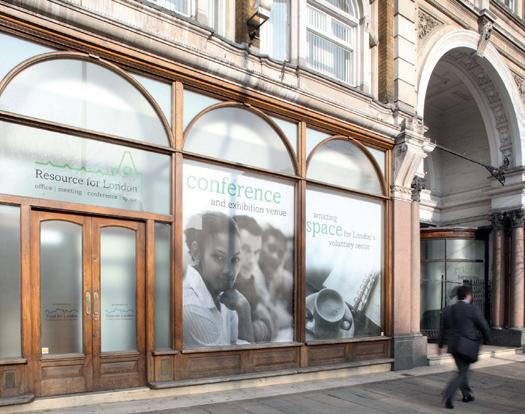
Trust for London owns 356 Holloway Road, London. This building houses Resource for London which is a registered charity and a company limited by guarantee with the objective of providing office space and meeting rooms to charitable organisations at an affordable rent. The Ethical Property Company continues to manage the centre, working closely with the board of Resource for London.
The accounts of Resource for London show a net unrestricted surplus of £214,591 and a net restricted surplus of £929 (2022 total net surplus £51,568), after Trust for London waived the rent for Resource for London for 2023. It had total funds at 31 December 2023 of £705k (2022: funds £489k). The performance of Resource for London is shown in the Statement of Financial Activities within the restricted funds of the Trust.

Trust for London owns playing fields in Bellingham which are the direct responsibility of the Trust through its subsidiary, Bellingham Community Project Limited (BCP), a registered charity, which runs a leisure and lifestyle centre on the site for the benefit of the local community.
The accounts of the Project show net deficit of £34,524 (2022: deficit of £55,598k) after receipt of £50k (2022: £25k) in grants from the Trust. It had total net assets at 31 December 2023 of £2,627,049 (2022: £2,661,573).
View the full Trust for London investment policy here.
The Trustee is required to preserve the capital value of its permanently endowed investments in real terms while maximising the amount available to its beneficiaries; this should be done without taking undue risks to produce a financial return to support the grant programme.
The Trust is made up of three funds. The Central Fund, which aims to tackle poverty and inequality, the City Church Fund for the advancement of religion and the Trust for London Common Investment Fund, established to pool the investment assets of the other two funds.
For the permanently endowed investment assets, the Trust is authorised by the Charity Commission to pursue a total return approach to investment. The Trust is therefore able to focus on investments, which are expected to meet the Trust’s stated investment objectives over the long term. The permanent endowment will typically be invested in a well-diversified investment portfolio that should, over time, produce a positive performance enabling the Trust to achieve an overall total return. The Trustee also seeks to be even-handed as between present and future beneficiaries. These investments are mainly held within the Common Investment Fund.
The Trust also has expendably endowed investment assets within the Central Fund. These assets can be invested through structures that may or may not produce a financial return but which, if not, must directly further the Central Fund’s own charitable purposes (ie it must have a significant impact on poverty and inequality).
The Central and City Church Funds also hold certain permanently endowed investments assets and also cash and near cash assets to meet grant commitments.
The board retains the Trust’s overall power of investment but has delegated responsibility for managing all the Trust’s assets to the Asset Allocation Committee (AAC). The AAC has in turn delegated the management of property assets within the Common Investment Fund to the Estate Committee and the management of the investment assets within the Central Fund to the Social Enterprise Committee.
The aim is to achieve CPI plus 4% for the endowments as a whole. Paying due regard to investment risks, the Asset Allocation Committee and its Committees seek for the:
i) Permanently endowed investment assets: to manage the Trust’s portfolio of commercial investments and properties with a view to maximising its total return in real terms: that is the income generated by, and the capital growth of, the Trust’s portfolio; and
ii) Expendably endowed investment assets: to use social investment as a strategy to tackle poverty and social injustice through a blend of higher-risk, innovative, catalytic and system-changing investments. Investments will be well-diversified and proportionally allocated with the main priority being on achieving the intended social impact; the return of capital and financial returns are secondary to this, but need to remain within parameters set by the Asset Allocation Committee and provided that social impact contributes to the purposes of the Central Fund.
Trust for London aims to be a leader on responsible/impact investing while adhering to its financial goals. We believe that taking account of environmental, social and governance issues in our investment decisions is an intrinsic part of being a good long-term investor. We are also committed to supporting engagement with investment managers and other agents and the underlying companies invested in, particularly on matters relating to social issues.
We generally take a non-prescriptive approach, requiring our managers to work within our mission but largely not telling them how to do so. We believe that this approach leads to better manager engagement and reflects our own prescribed influence as a consequence of some products being pooled.
The Trust aims to define responsible investment standards for our investment managers, recognising the risk that if social inequalities are not addressed and environmental challenges, such as climate change, are unabated over the next 30 years then poverty and inequality in London will increase. In addition, we are committed to engaging with the investment community to drive increased availability and understanding of social investments that directly tackle poverty and inequality.
To demonstrate that environmental changes are a long-term risk to the aims of the Trust, we commit to achieving a net-zero goal in the investment portfolios by 2050. As a result, we engage with our investment managers to set interim targets for their investments to achieve these aims. We will incorporate an update on their progress into the annual review of each investment manager.
As part of our commitment to the environment, we will work with Charities Responsible Investment Network (CRIN) on responsible investment policy.
With the aim of using the power of collaborative investors to engage in and encourage the adoption of improved policies and practices by investee companies, Trust for London is a member of the ShareAction initiative – CRIN, and also aims to align itself with the responsible investment approach of the Church Commissioners.
Our planning processes have taken into account the current uncertain economic climate and its potential impact on sources of income. In particular the board and senior management team have been regularly monitoring and reporting on the potential impact of the economic climate on the organisation and its stakeholders. The board has considered budgets and forecasts for the period to July 2025 and are satisfied the funds available within the Trust’s substantial endowment are sufficient to cover existing commitments and planned spending over this period. As such, the board considers that all appropriate steps have been taken to effectively manage these risks and that overall there are no material uncertainties that call into doubt the charity’s ability to continue. The accounts have therefore been prepared on a going concern basis.
The Trust has a formal risk management process to assess business risks and implement risk management strategies in the context of the Trust’s strategic plan for 2018–2023. This involves identifying the types of risks it faces, categorising them in terms of potential impact and likelihood of occurrence, and identifying means of mitigating the risks.
The most significant risks identified by the Trust and the plans for mitigating these are as follows:
• Adverse public and media comment: The Trust strives to work with propriety and seek legal advice with regards to riskier work. It has developed a communications strategy to ensure consistent messaging and undertaken crisis media training.
• A crash in the financial and property markets and/or excessive volatility in the markets: The Trust uses asset allocation to spread portfolio risk and tasks the individual asset committees to assess risk. Securing good quality advice is also seen as a useful step towards minimising risk.
• Fraud or misappropriation of funds by recipients or virus infiltration of IT: The Trust has a fraud policy in place. Grants managers visit and monitor grantees. Fraud is reviewed regularly at grants committees. Monitoring of financial controls and reporting.
• Financial underperformance of subsidiaries: Regular reporting of subsidiaries to Trust board and committees. Additional support agreed where necessary.
It is the Trust’s policy not to maintain any unrestricted reserves as ongoing working capital is available from the endowment under the total return policy adopted. The total value of funds at 31 December 2023 was £301m, of which the permanent and expendable endowment stood at £290m with the balance of funds being £4.9m of restricted funds relating to the Trust’s subsidiaries and £5.8m of restricted funds being the amount unspent from the grant budget.
The trustee is Trust for London Trustee, which exists solely for the purpose of carrying out the duties of the trustee and associated activities of Trust for London. All financial transactions are reported by Trust for London. These consolidated accounts incorporate the entities shown within the dotted lines in the below diagram. Trust for London also has a 30.22% equity holding in the Social Justice and Human Rights Centre Limited.
Trust for London is made up of three funds. The Central Fund, which aims to tackle poverty and inequality in London, the City Church Fund for the advancement of religion and the Trust for London Common Investment Fund, established to pool the investment assets of the other two funds. Trust for London Trustee, the corporate trustee of the charity, has up to 18 board member trustees who are normally appointed by a variety of nominating bodies or by itself.
All trustees are appointed on a five-year term. All trustees give their time freely and no trustee remuneration was paid in the year. Details of trustee expenses and related party transactions are disclosed in the financial statements. A full induction programme is provided for all new trustees. Trustees are required to disclose all relevant interests and withdraw from decisions where a conflict of interest arises in accordance with policy.
The London Trust (dormant charity)
Merged with Trust for London 10 May 2024
Trust for London Trustee (charitable company)
Trust for London (charity)
Bellingham Community Project Limited (charitable company)
Bellingham Community Project Management Company Limited (trading company)
Dissolved 24 October 2023
Greenford Playing Fields Limited (dormant charity)
Resource for London (charitable company)
The trustees consider the board of trustees and the senior management team as comprising the key management personnel of the charity in charge of directing and controlling the charity and running and operating the charity on a day-to-day basis. The board, which meets quarterly, has ultimate oversight and responsibility for the Trust’s activities but has delegated decision-making to board committees and delegated grant making power to senior staff, with trustees’ involvement on grant decisions focused on high-risk applications.
Through the work of the Governance Committee, and by conducting reviews of the board’s governance arrangements, the Trust aims to ensure an appropriate, and diverse, balance of skills, experience and backgrounds among trustees. The Trust believes that effective decision-making is reflected throughout the organisation through a clear system of delegation and robust management and control systems.
Trust for London, a Living Wage employer, is committed to ensuring that we pay our staff fairly and in a way which ensures we attract and retain the right skills to have the greatest impact in delivering our charitable objectives. In accordance with the Charities SORP FRS 102 the Trust discloses:
• all payments to trustees (no trustees are remunerated).
• the number of staff in receipt of more than £60,000 and above (in bands of £10,000).
• pensions and other benefits.
The Trust’s chair, in consultation with the vice chair and chair of the Finance & Resources Committee, has governance responsibility for the oversight of the chief executive’s pay reviews, while the Trust’s Finance & Resources Committee has oversight of staff pay reviews. Both report to the board of trustees.
The Finance & Resources Committee meets annually to consider staff remuneration. The chief executive and members of the senior management team are in attendance for the meeting. Its main responsibilities are to:
• conduct three-yearly reviews of staffing structures and salaries.
• decide the terms and conditions of service of the Trustee’s staff.
• approve the annual cost of living percentage increase (which can be zero) taking into account a variety of indices.
• approve any incremental increases.
• approve any pay awards and staff salary increases outside of the annual review process as recommended from time to time by the chief executive.
• determine pension arrangements.
• approve staff policies.
Further information on staffing costs and pensions is presented in the notes to the financial statements.

By order of the Trustee
Dr Omar Khan
The trustees, who are also the directors of the Trust for London for the purposes of company law, are responsible for preparing the trustees’ report and the financial statements in accordance with applicable law and United Kingdom Accounting Standards (United Kingdom Generally Accepted Accounting Practice).
Company law requires the trustees to prepare financial statements for each financial year which give a true and fair view of the state of affairs of the charitable company and of the incoming resources and application of resources, including the income and expenditure of the charitable company, for that period.
In preparing these financial statements, the trustees are required to:
• Select suitable accounting policies and then apply them consistently;
• Observe the methods and principles in the Charities SORP;
• Make judgements and accounting estimates that are reasonable and prudent;
• State whether applicable UK Accounting Standards have been followed, subject to any material departures disclosed and explained in the financial statements; and
• Prepare the financial statements on the going concern basis unless it is inappropriate to presume that the company will continue in business.
The trustees are responsible for keeping proper accounting records that disclose with reasonable accuracy at any time the financial position of the charitable company and enable them to ensure that the financial statements comply with the Companies Act 2006. They are also responsible for safeguarding the assets of the charitable company and hence for taking reasonable steps for the prevention and detection of fraud and other irregularities.
In so far as the trustees are aware:
• There is no relevant audit information of which the charitable company’s auditor is unaware; and
• The trustees have taken all steps that they ought to have taken to make themselves aware of any relevant audit information and to establish that the auditor is aware of that information.

Approved by on 5 July 2024
signed on their behalf by Omar Khan
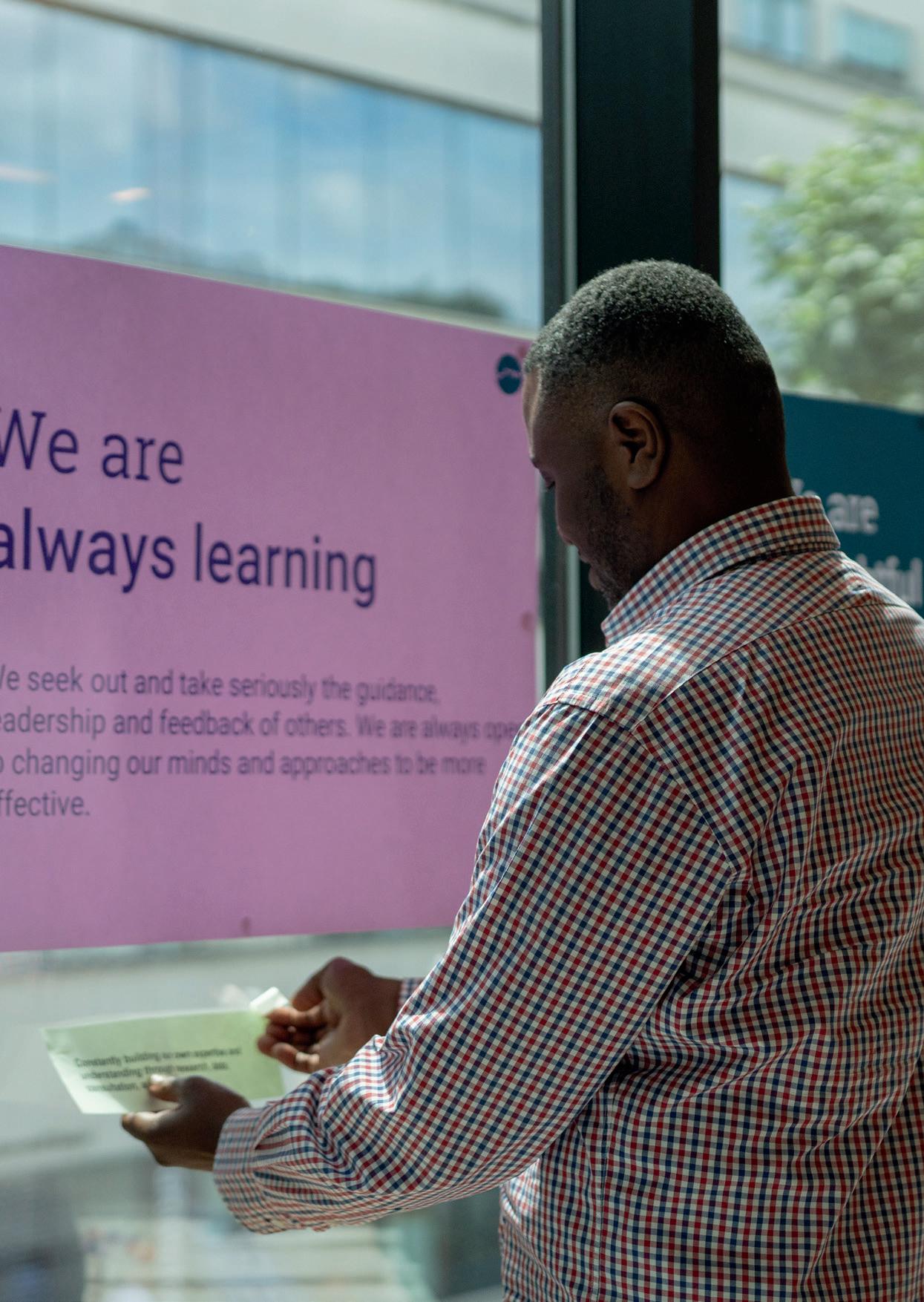
We have audited the financial statements of Trust for London for the year ended 31 December 2023 which comprise Consolidated Statement of Financial Activities, Consolidated and Trust Balance Sheets, Consolidated Statement of Cash Flows and notes to the financial statements, including a summary of significant accounting policies. The financial reporting framework that has been applied in their preparation is applicable law and United Kingdom Accounting Standards, including Financial Reporting Standard 102 The Financial Reporting Standard applicable in the UK and Republic of Ireland (United Kingdom Generally Accepted Accounting Practice).
In our opinion, the financial statements:
• give a true and fair view of the state of the group’s and of the parent charity’s affairs as at 31 December 2023 and of the group’s net movement in funds for the year then ended;
• have been properly prepared in accordance with United Kingdom Generally Accepted Accounting Practice; and
• have been prepared in accordance with the requirements of the Charities Act 2011.
We have been appointed as auditor under section 144 of the Charities Act 2011 and report in accordance with the Act and relevant regulations made or having effect thereunder. We conducted our audit in accordance with International Standards on Auditing (UK) (ISAs (UK)) and applicable law. Our responsibilities under those standards are further described in the Auditor’s responsibilities for the audit of the financial statements section of our report. We are independent of the group in accordance with the ethical requirements that are relevant to our audit of the financial statements in the UK, including the FRC’s Ethical Standard, and we have fulfilled our other ethical responsibilities in accordance with these requirements. We believe that the audit evidence we have obtained is sufficient and appropriate to provide a basis for our opinion.
In auditing the financial statements, we have concluded that the trustees’ use of the going concern basis of accounting in the preparation of the financial statements is appropriate.
Based on the work we have performed, we have not identified any material uncertainties relating to events or conditions that, individually or collectively, may cast significant doubt on the group’s ability to continue as a going concern for a period of at least 12 months from when the financial statements are authorised for issue.
Our responsibilities and the responsibilities of the trustees with respect to going concern are described in the relevant sections of this report.
The trustees are responsible for the other information. The other information comprises the information included in the trustees’ annual report and the chief executive’s statement. Our opinion on the financial statements does not cover the other information and, except to the extent otherwise explicitly stated in our report, we do not express any form of assurance conclusion thereon.
In connection with our audit of the financial statements, our responsibility is to read the other information and, in doing so, consider whether the other information is materially inconsistent with the financial statements or our knowledge obtained in the audit or otherwise appears to be materially misstated. If we identify such material inconsistencies or apparent material misstatements, we are required to determine whether there is a material misstatement in the financial statements or a material misstatement of the other information. If, based on the work we have performed, we conclude that there is a material misstatement of this other information, we are required to report that fact. We have nothing to report in this regard.
We have nothing to report in respect of the following matters in relation to which the Charities (Accounts and Reports) Regulations 2008 require us to report to you if, in our opinion:
• adequate accounting records have not been kept by the parent charity; or
• sufficient accounting records have not been kept; or
• the parent charity financial statements are not in agreement with the accounting records and returns; or
• we have not received all the information and explanations we require for our audit.
As explained more fully in the trustees’ responsibilities statement set out on page 76, the trustees are responsible for the preparation of the financial statements and for being satisfied that they give a true and fair view, and for such internal control as the trustees determine is necessary to enable the preparation of financial statements that are free from material misstatement, whether due to fraud or error.
In preparing the financial statements, the trustees are responsible for assessing the group’s and the parent charity’s ability to continue as a going concern, disclosing, as applicable, matters related to going concern and using the going concern basis of accounting unless the trustees either intend to liquidate the group or the parent charity or to cease operations, or have no realistic alternative but to do so.
Our objectives are to obtain reasonable assurance about whether the financial statements as a whole are free from material misstatement, whether due to fraud or error, and to issue an auditor’s report that includes our opinion. Reasonable assurance is a high level of assurance, but is not a guarantee that an audit conducted in accordance with ISAs (UK) will always detect a material misstatement when it exists. Misstatements can arise from fraud or error and are considered material if, individually or in the aggregate, they could reasonably be expected to influence the economic decisions of users taken on the basis of these financial statements.
Irregularities, including fraud, are instances of non-compliance with laws and regulations. We design procedures in line with our responsibilities, outlined above, to detect material misstatements in respect of irregularities, including fraud. The extent to which our procedures are capable of detecting irregularities, including fraud is detailed below.
Based on our understanding of the group and the environment in which it operates, we identified that the principal risks of non-compliance with laws and regulations related to charity law applicable in both England and Wales, and we considered the extent to which non-compliance might have a material effect on the financial statements. We also considered those laws and regulations that have a direct impact on the preparation of the financial statements such as the Charities Act 2011.
We evaluated management’s incentives and opportunities for fraudulent manipulation of the financial statements (including the risk of override of controls), and determined that the principal risks were related to income recognition. Audit procedures performed by the engagement team included:
• Inspecting correspondence with regulators and tax authorities;
• Discussions with management including consideration of known or suspected instances of non-compliance with laws and regulation and fraud;
• Evaluating management’s controls designed to prevent and detect irregularities;
• Identifying and testing journals, in particular journal entries posted with unusual account combinations, postings by unusual users or with unusual descriptions; and
• Challenging assumptions and judgements made by management in their accounting estimates.
Because of the inherent limitations of an audit, there is a risk that we will not detect all irregularities, including those leading to a material misstatement in the financial statements or non-compliance with regulation. This risk increases the more that compliance with a law or regulation is removed from the events and transactions reflected in the financial statements, as we will be less likely to become aware of instances of non-compliance. The risk is also greater regarding irregularities occurring due to fraud rather than error, as fraud involves intentional concealment, forgery, collusion, omission or misrepresentation.
A further description of our responsibilities for the audit of the financial statements is located on the Financial Reporting Council’s website at: www.frc.org.uk/auditorsresponsibilities. This description forms part of our auditor’s report.
This report is made solely to the charity’s trustees, as a body, in accordance with section 144 of the Charities Act 2011 and regulations made under section 154 of that Act. Our audit work has been undertaken so that we might state to the charity’s trustees those matters we are required to state to them in an Auditor’s report and for no other purpose. To the fullest extent permitted by law, we do not accept or assume responsibility to anyone other than the charity’s trustees as a body for our audit work, for this report, or for the opinions we have formed.

Siobhan Holmes (Senior Statutory
Auditor)
for and on behalf of
Haysmacintyre LLP
Statutory Auditors
10 Queen Street Place London
EC4R 1AG
Date: 12 August 2024
Haysmacintyre LLP is eligible to act as an auditor in terms of section 1212 of the Companies Act 2006.
Consolidated Statement of Financial Activities Year ended 31 December 2023
All income derives from continuing operations. There have been no recognised gains or losses other than the net movement in funds in the year.
The notes on pages 88 to 115 form part of these accounts.
and Trust Balance Sheets Company number: 05258789
The accounts were approved and authorised for issue by the board on 5 July 2024 and signed on their behalf by: Omar Khan, chair.

The notes on pages 88 to 115 form part of these accounts.
12,455,153
Analysis of cash and cash equivalents
Notes to the cash flow statement
Reconciliation of operating result to net cash outflow from operating activities
in creditors: amounts falling due within one year (1,586,802) (3,673,500) Decrease in creditors: amounts falling due after more than one year (8,362,248) 5,114,828 Net cash used in operating activities (29,025,353) (23,522,531)
Reconciliation of net debt Balance at 31 December 2022 Change in year Balance at 31 December 2023
The charity has taken advantage of the exemptions in FRS 102 from the requirements to present a charity only Cash Flow Statement.
1 Basis of preparation of financial statements and assessment of going concern
Trust for London is a charity registered in England and Wales governed by a 31 December 2004 scheme which operates from 4 Chiswell Street, London, EC1Y 4UP. Charity number 205629. Company number 05258789.
The financial statements are prepared under the historical cost convention with items recognised at cost or transaction value unless otherwise stated in the relevant notes to these accounts.
The accounts (financial statements) have been prepared in accordance with the Statement of Recommended Practice: Accounting and Reporting by Charities preparing their accounts in accordance with the Financial Reporting Standard applicable in the United Kingdom and Republic of Ireland (FRS 102) and the Charities Act 2011 and UK Generally Accepted Practice as it applies from 1 January 2015.
Financial resources are well placed to manage the business risks. Our planning processes have taken into account the current economic climate and its potential impact on sources of income. The board has considered budgets and forecasts for the period to December 2024 and is satisfied the funds available within the Trust’s substantial endowment are sufficient to cover existing commitments and planned spending over this period. As such, the board considers that all appropriate steps have been taken to effectively manage these risks and that overall there are no material uncertainties that call into doubt the charity’s ability to continue. The accounts have therefore been prepared on a going concern basis. The board continues to monitor investment performance regularly.
Trust for London meets the definition of a public benefit entity under FRS 102.
In the application of the charity’s accounting policies, which are described in note 2, the Trustee is required to make judgements, estimates and assumptions about the carrying value of assets and liabilities that are not readily apparent from other sources. The estimates and underlying assumptions are based on historical experience and other factors that are considered to be relevant. Actual results may differ from these estimates.
The estimates and underlying assumptions are reviewed on an ongoing basis. Revisions to accounting estimates are recognised in the period in which the estimate is revised if the revision affects only that period, or in the period of the revision and future periods if the revision affects the current and future periods.
The key sources of estimation uncertainty that have a significant effect on the amounts recognised in the accounts are described in the accounting policies and are summarised below:
• Valuation of investment properties and valuation of land and buildings – the charity’s investment properties and land and buildings other than the Bellingham Leisure & Lifestyle Centre are stated at their estimated fair value based on professional valuations as disclosed in notes 11 and 12.
• Multi-year grant commitments – the charity recognises future liabilities discounted to their present value where material.
No material loss to investment value post balance sheet has arisen.
The charity has taken advantage of the exemptions in FRS 102 from the requirements to present a charity only Cash Flow Statement and certain disclosures about the charity’s financial instruments.
(i) Basis of consolidation
Resource for London and Bellingham Community Project Limited have been treated as subsidiary undertakings as defined in the SORP. Therefore all their transactions are accounted for gross in these accounts. The funds of these subsidiaries have been treated as restricted funds of the charity. Bellingham Community Project Management Company Limited is treated as a subsidiary as defined in the SORP. The costs of this company are shown on separate lines in the Statement of Financial Activities.
(ii) Income and expenditure
All income is recognised in the Statement of Financial Activities once the charity has entitlement to the income, it is probable that the income will be received and the amount of income receivable can be measured reliably.
All income is accounted for on an accruals basis.
Grants receivable and donations are recognised upon notification in writing of the amount awarded or donated and date of entitlement.
Resource for London rent, service charge income and similar income represents income from the operation of Resource for London at 356 Holloway Road, London, N7.
Investment income and related tax credits are recognised upon notification in writing of the amount and date of entitlement.
In some cases the Trust pays property expenses on behalf of its tenants and recovers these expenses in full. In such circumstances the Trust has thought it appropriate to show these service charge expenses as a deduction from income on the face of the Statement of Financial Activities.
Liabilities are recognised in the Statement of Financial Activities as expenditure as soon as there is a legal or constructive obligation committing the charity to that expenditure, it is probable that settlement will be required and the amount of the obligation can be measured reliably.
All expenditure is accounted for on an accruals basis.
Raising funds comprise those operational costs directly attributable to managing the investment and property portfolio and raising investment and rental income, those expended on marketing and an appropriate proportion of general overheads which are identifiable wholly or mainly in support of raising funds.
Charitable activities include grants made for charitable purposes from the Central Fund at the discretion of the Trust. These are charged to grants payable when they are approved by the Trust and notified to the beneficiaries. When grants are withdrawn or unclaimed they are shown as a deduction from grants payable. Grants made by the
Trust but not paid at the year end are carried forward as a liability. They also include grants staff costs, consultants and an appropriate proportion of general overheads which are identifiable wholly or mainly in support of charitable expenditure.
Resource for London costs relate directly to the operation of Resource for London. Bellingham Community Project costs relate directly to the operation of Bellingham Community Project. Costs of trading subsidiary relate to the operations of Bellingham Community Project Management Company Ltd.
Governance costs are those incurred in connection with the governance arrangements of the Trust as opposed to those associated with charitable activity. They cover the costs of compliance with constitutional and statutory requirements and include audit fees, legal fees and costs of trustee meetings. They are shown within charitable activities and raising funds in an appropriate proportion.
(iii) Financial instruments
Trust for London has financial assets and financial liabilities of a kind that qualify as basic financial instruments. Basic financial instruments are initially recognised at transaction value and subsequently measured at the present value of future cash flows (amortised cost). Financial assets held at amortised cost comprise cash at bank and in hand, short term cash deposits and the group’s debtors excluding prepayments. Financial liabilities held at amortised cost comprise the group’s short and long term creditors excluding deferred income and taxation payable. No discounting has been applied to these financial instruments on the basis that the periods over which amounts will be settled are such that any discounting would be immaterial. Investments (excluding property) are included in the balance sheet at their fair value as described in (iv) below.
(iv) Investments
Freehold and leasehold investment properties are included in the balance sheet at fair value (market value) at the balance sheet date. The valuation was prepared as at 31 December 2023 by Cluttons, Chartered Surveyors, in accordance with R.I.C.S. guidelines. The previous valuation had been carried out at 31 December 2022. Listed investments and indirect property holdings are shown at the middle market price ruling at the balance sheet date, with the exception of certain indirect property holdings which are shown at net asset value. Unlisted investments are shown at cost less impairment.
Gains and losses are reflected in the Statement of Financial Activities and allocated to the respective funds.
(v) Mission related investments
Loans are accounted for at the outstanding amount of the loan less any provision for unrecoverable amounts. Unquoted equity, social investment funds and partnership interests are held at cost, less any provision for diminution in value, unless the Trust is able to obtain a reliable estimate of fair value. Quoted investments are stated at market value at the balance sheet date.
(vi) Associate entities
Associate entities are included in the balance sheet under the equity method of accounting, ie initially recognised at cost and then subsequently adjusted to reflect the charity’s share of the post-acquisition change in the net assets of the associate.
Tangible fixed assets costing more than £1,000 are capitalised. All fixed assets other than freehold land and buildings are shown at cost less depreciation.
Freehold land and buildings other than the Bellingham Leisure & Lifestyle Centre is included in the balance sheet at fair value (market value) at the balance sheet date. The valuation was prepared as at 31 December 2023 by Cluttons, Chartered Surveyors, in accordance with R.I.C.S. guidelines. The previous valuation had been carried out at 31 December 2021.
Depreciation is provided on all tangible fixed assets at rates calculated to write each asset down to its estimated residual value in equal instalments over its expected useful life as follows:
Investment freehold land and buildings – nil: Operational freehold buildings – 50 years: Operational leasehold land and buildings – life of the lease: Assets in the course of construction – nil: Leasehold improvements – 4%: Computer equipment – 25%: Leisure & Lifestyle Centre equipment – 10%: Furniture and fittings – 20%.
(viii)
Short term cash deposits are bank and money market deposits which do not have instant access but have a requirement for no more than three months’ notice before withdrawal.
There is a group personal pension scheme for staff. Contributions are accounted for as and when the amounts become payable.
Funds are available for use at the discretion of the Trust in furtherance of the general objectives of the Trust.
The investment assets of the Central Fund and the City Church Fund are held within the Trust for London Common Investment Fund. These assets are permanently endowed. Trustees confirm that, as per the total return policy adopted, funds can be transferred from the endowment fund to meet current liabilities obligations as they fall due.
Trust for London is considered to satisfy the tests set out in Paragraph 1 Schedule 6 Finance Act 2010 and therefore it meets the definition of a charitable trust for UK income tax purposes. Accordingly, the charity is exempt from taxation in respect of income or capital gains received, as long as the income and gains are all within categories covered by Part 10 Income Tax Act 2007 or Section 256 of the Taxation of Chargeable Gains Act 1992, and to the extent that such income or gains are applied exclusively to charitable purposes. Income tax will be payable to the extent that these conditions are not met.
Where appropriate, costs are shown inclusive of VAT as the charity is partially unable to recover VAT on its activities.
3 Donations and legacies
4 Income from charitable activities
1,106,691
6 Total return transfers between funds
A summary of the Trust's permanent endowment is as follows:
Aggregate value of the assets since the outset of total return
Aggregate value of the assets for the year ended 31 December 2023
The aggregate value of the unapplied total return continues to form part of the permanent endowment and does not constitute a separate fund for accounting purposes.
Totals
Where costs are allocated the basis of apportionment is staff time spent on each
Pension costs of £11,985 relate to the Bellingham Community Project Subsidiary. No other pension costs relate to restricted funds.
During the period, the Trust incurred no costs in relation to employee settlement agreements (2022: £0k)
The Trust considers its key management personnel comprise the trustees and the members of the senior management team, ie chief executive, director of finance, director of grants and director of social investment. The total employment benefits including employer pension contributions of the key management personnel were £510,988 (2022: £555,666).
No board member received remuneration or any other benefits during the year (2021: nil). Out of pocket expenses were reimbursed to board members as follows:
Cost or valuation
*Total historical cost at 31 December - -
*Historical cost of freehold land and buildings is shown as nil as the acquisition of the charitable properties occurred over fifteen years ago.
Freehold land and buildings represent a proportion of 350–356 Holloway Road, London, N7 which is occupied by Resource for London and the Bellingham Leisure & Lifestyle Centre managed by Bellingham Community Project Ltd. All fixed assets are held for charitable purposes.
There are no capital commitments planned for 2024.
* includes global equities, bonds, multi-asset funds and alternative asset funds
965,614 974,180
6,174,465
(4,300,000) (2,500,000)
5,927,849
324,788,661
The Trust holds a 30.22% equity holding in the Social Justice and Human Rights Centre Limited (SJ&HRC).
Accordingly an appropriate share of the net assets of SJ&HRC has been recognised in the group balance sheet as an investment in associate during the year as follows:
15 Creditors: Amounts falling due within one year
16 Creditors: Amounts falling due after more than one year
16a Movement in provisions and funding commitments during year
Fund
Lessor
The Trust is entitled as landlord to income from investment properties under operating leases. For non-cancellable leases with lives of less than 25 years
Future minimum lease payments under non-cancellable operating leases for each of the following periods:
- not later than one year 1,294,865 1,304,429
- later than one year and not later than five years; and 4,667,051 4,848,708 - later than five years 1,735,000 2,938,500 7,696,916 9,091,637
For non-cancellable leases with lives of 25 years and over*
Future minimum lease payments under non-cancellable operating leases for each of the following periods:
- not later than one year 2,990,733 2,775,661
- later than one year and not later than five years; and 11,962,932 11,102,644 - later than five years
547,960,020 721,948,876 561,838,325
* These leases can have lives up to 1,000 years as they include ground rent leases which are valued at £87.5m and form some 65% of the portfolio.
Lessee
The Trust as tenant has to pay rent under an operating lease at 4 Chiswell Street. For non-cancellable leases with lives of less than 25 years
Future minimum lease payments under non-cancellable operating leases for the each of the following periods: - not later than
- later than five years 0 240,088 1,572,894 1,906,096
Lease payments recognised as an expense in the year were £244,062.
The Trust provides a group personal pension scheme.
The Trust makes contributions at a rate of 10% to individuals’ personal pensions within the group scheme, provided they make a personal contribution of at least 3%. During a transitional period, for certain members, the percentage of contributions may vary between 3% and 17% depending on the age of the employee. In 2023 the Trust made contributions of £150,488 (2022: £146,296) to the scheme.
In addition, staff at the Trust’s subsidiary charities are entitled to contributions at a rate of 10% of gross salaries to a personal pension scheme. Total contributions made in 2023 at the Bellingham Community Project were £11,985 (2022: £9,313).
No staff are directly employed at Resource for London.
Staff were enrolled under auto-enrolment as from 1 June 2016.
Grants and charges between the Trust and its subsidiaries are shown as transfers between funds rather than as income in the Statement of Financial Activities.
The Central Fund spent in the year from its expendable endowment to supplement the income derived from it. The amount is shown by way of transfer between funds.
20 Restricted funds – subsidiaries and associates
These funds have been shown as restricted because the charity's branches and associates have separate charitable purposes.
Full comparatives can be found at https://trustforlondon.org.uk/about/finance-and-investment/
These funds have been shown as restricted because the Central and City Church Funds have separate charitable purposes. Included within the Central Fund are restricted grant balances carried forward as follows:
The purposes of these funds are:
Citizenship and Integration
Moving On Up
Strengthening Voices Realising Rights
Private Rented Sector
Disability Justice Fund
Racial Justice Fund
To improve social cohesion in London by working closely with the Mayor of London and the GLA.
To improve employment rates for young Black men.
To support Deaf and Disabled People's Organisations (DDPOs) in their work protecting, promoting and advancing equal rights and inclusion for Deaf and Disabled Londoners (DDL).
To strengthen the voice of tenants in the private rented sector.
Towards a strong, vibrant, diverse and sustainable disability justice movement.
To increase economic empowerment among London's Black and minoritised communities.
Organisation name
Resource for London
Charity number: 1015305
Company number: 02676631
Bellingham Community Project
Charity number: 1036667
Company number: 02773345
Bellingham Community Project Management Company
Company number: 03274735
Dissolved 24 October 2023
Nature of organisation
Resource for London operates from offices at 356 Holloway Road, a property leased to it by the Trust. It is a resource centre for charities, providing them with office and meeting space.
Bellingham Community Project runs a leisure and lifestyle centre for the benefit of the local community which is managed by the London Borough of Lewisham and provides support for local community projects.
Bellingham Community Project Management Company's principal activity is to provide advisory services to charities, community groups, service providers and businesses who are looking to set up their own projects.
Ownership/interest
Trust for London is the sole member of Resource for London. The liability of the member is limited to £1.
Greenford Playing Fields
Charity number: 1036672
Company number: 02773351
The company was treated as dormant in the year ended 31 December 2022.
Bellingham Community Project is a charitable venture run by Trust for London in Bellingham. The liability of the members is limited to £1. The Trust has control over the Project by virtue of the fact that it has a majority vote on the board of directors of the company.
Bellingham Community Project Management Company Limited, a company incorporated in the UK, is a subsidiary of Bellingham Community Project Limited. The charity, through its charitable subsidiary Bellingham Community Project Limited, wholly owns the shares of Bellingham Community Project Management Company Limited.
Greenford Playing Fields Limited is a subsidiary of the Trust. The liability of the members is limited to £1. The Trust has a majority vote on the board of directors of the company.
continued
Profit/loss for year ended 31 December 2023 Resource for London Bellingham Community Project
Related party transactions
There were no amounts payable to Trust for London in rent in 2023 or 2022. The amount due to the Trust from Resource for London at the end of 2023 was £65,000 (2022: £140,000).
Grants totalling £50,000 (2022: £25,000) were made by the Trust towards running costs. During 2023 the Project Director was seconded to the Trust one day a week to work on mission-related investment projects for the Trust. The secondment fee paid to the Project was £17,178 (£2022: £15,456).
During 2023 Trust for London was a fellow trust of The London Trust, a charity which is also administered by Trust for London trustees and which produces separate accounts. The charity is dormant. The London Trust was merged with Trust for London on 10 May 2024.
25 Associate entity: Social Justice and Human Rights Centre Limited (Company Number 7630171)
Social Justice and Human Rights Centre Limited, also known as the Foundry, is an associate entity of the Trust. It is a company limited by share capital. The Trust has a significant influence over this company by virtue of the fact that it has a vote on the board of directors of the company and that it owns 30.22% of the share capital. See note 13: Investment in associate.
26 Related party transactions
The Trust has a policy for declaration of interests by both trustees and staff. The declaring of interests by a trustee forms part of a wider code of behaviour expected of trustees in fulfilling their obligations towards the Trust and its beneficiaries. Any gifts or hospitality with a value of more than £50 are disclosed unless it is in the normal course of business.
The Trust has agreed to take on 90% of the costs of the repair obligations for the leisure centre falling to its subsidiary Bellingham Community Project Limited (BCP) under the lease with London Borough of Lewisham. As regards the future repair obligations, the potential extent of this liability is unknown and may be in place until 2053 should the original head lease signed by the Trust and BCP run to term.
The assets of the City Parochial Foundation come from the philanthropy of the people of London. Around 1,400 separate charitable gifts and bequests, some of them 400 years old, were held by the 112 parishes within the City of London, to be used for the benefit of the churches or, more often, the poor of those parishes. During the 19th century, the City grew to be a world financial centre and the income of these charities rose substantially. In contrast, the number of beneficiaries fell. Some parishes had no residents at all.
On 10 August 1878, a Royal Commission was appointed to investigate the parochial charities of the City of London. Its report resulted in the City of London Parochial Charities Act, 1883. This Act provided that the five largest parishes should continue to manage their own charitable endowments, but that the bulk of the remainder should be administered by a new corporate body, to be known as the Trustees of the London Parochial Charities. It defined the area of benefit as the City of London and the Metropolitan Police District of London, the largest boundary definition available for Greater London. The endowments were brought together into two funds, a City Church Fund and a Central Fund. Together these constituted the City Parochial Foundation.
In 1986 the City Parochial Foundation became the Trustee of the Trust for London. The Trust was also endowed with £10m derived from the sale of the Greater London Council’s assets. It was tasked with targeted small locally-based community organisations which were independent of larger bodies.
On 1 January 2010, all the assets and liabilities of the Trust for London were transferred to City Parochial by an Order of the Charity Commissioners dated 11 December 2009. As from 26 March 2010 the Central Governing Body was renamed the Board. All the entities were rebranded as at 1 July 2010. City Parochial Foundation Trustee was renamed Trust for London Trustee, City Parochial Foundation was renamed Trust for London and the former Trust for London was renamed The London Trust.
We celebrated our 125th anniversary in 2016 and after 30 years in Middle Street moved to new office premises in Chiswell Street in 2018.
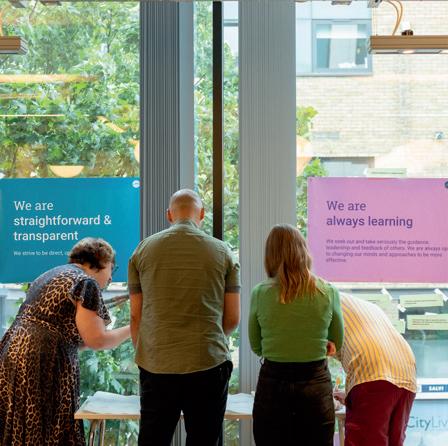
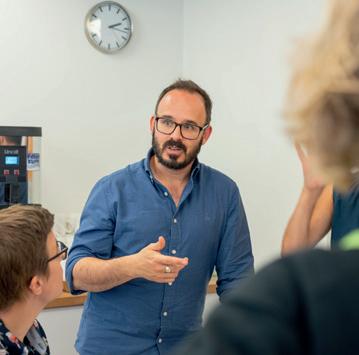
Rehana Ameer (left October 2023)
Peter Baxter (term ended August 2023)
Andrew Beal (joined December 2023 as chair of Social Investment Committee)
Andrew Brown OBE
Stephen Burns
Alexandra Doyle
Sir Peter Estlin (left March 2023)
Mayor Rokshana Fiaz
Alderman Alison Gowman
Jeffrey Hayes OBE (term ended March 2023)
Rosie Hewat (joined March 2024)
Nigel Howell
Denise Joseph
Dr Omar Khan (chair from March 2023)
Meredith Niles
Rosemarie Paul
Nick Peters
Dr Onkar Sahota (term ended June 2023)
Precious Sithole
Sonia Sodha
The Rt Revd Dr Joanne Woolway Grenfell (left June 2023)
Bims Alalade
Andrew Allen
John Colbert
Luis Correia da Silva (term ended July 2023)
Cliff Hawkins (term ended April 2023)
Sue Logan (term ended December 2023)
Edward Lord OBE JP (term ended March 2023)
Rebecca MacDonald
Loraine Martins MBE (term ended June 2023)
Adam Matan
Alison McDonald
Bernadette McKernan
Jonathan Page
Nick Peters
Jem Stein
Keith Swabey
Sara Vesey Holt (joined February 2023)
Our thanks to all trustees who stood down in 2023, particularly to the outgoing chair of trustees, Jeffrey Hayes OBE, who stood down following 13 years of service to Trust for London.
Photo credits: p6 – Musa Banwali, p7 – Jeff Moore, p14 – Musa Banwali, p15 – Musa Banwali, p16 – Sylvie Pope/Citizens UK, p17 –Enabled Living, p21 – Christian Cross, p25 – Aspire Community Works, p27 – ShareAction © IWGB, p29 – Connect North Korea, p33 – Christian Cross, p35 – Bloody Good Period, p38 – Praxis, p39 – Christian Cross, p42 – ADHD Babes © Latoya Fits, p43 – Action Disability Kensington and Chelsea, p44 – High Trees, p45 – Citizens Advice Lewisham, p46 – Global Action Plan, p47 – Global Action Plan, p53 – Jeff Moore, p57 – Jeff Moore, p58 – Positive East © Jeff Moore, p60–61 – Positive East © Jeff Moore, p63 – Vested, p66 – Positive East, p70 – Resource for London, Bellingham Community Project, p77 – Musa Banwali, p117 – Musa Banwali, back cover – clockwise from top left: Jeff Moore, Jeff Moore, Sylvie Pope/Citizens UK, Christian Cross, Jeff Moore.
Staff
Tunde Akinkunmi – finance manager
Jaspal Babra – senior grants administrator
Sue Caller – accounts assistant
Hilary Cornish – evaluation and learning manager
Johanna Cronin – head of communications
Giulietta Driver – executive assistant (joined June 2023)
Susie Dye – grants manager
Jamie Firby – communications officer
Douglas Gunn – director of social investment*
Manny Hothi – chief executive*
Ugo Ikokwu – grants manager
Luke Kavanagh – social investment manager
Jané Mackenzie – grants manager
Laura Mansfield – grants administrator
Winnel Radcliffe – office assistant
Deborah Ready – HR manager
Martin Reynolds – office manager
Jessica Rhodes – communications intern (left July 2023)
Rebecca Roberts – grants manager
Julian Rouse – secondee
Klara Skrivanova – director of grants*
Tina Stiff – IT manager
Alex Sutton – director of grants*
Heather Taylor – director of finance and resources*
Austin Taylor-Laybourn – grants manager
Helal Uddin Abbas – grants manager
* Senior Management Team (key management personnel)
Professional advisors
Solicitors
Farrer & Co, 66 Lincoln’s Inn Fields, London WC2A 3LH
Birketts LLP, 22 Station Road, Cambridge CB1 2JD
Property Investment Advisors
BH2, 6, 7 & 8 Tokenhouse Yard, London EC2R 7AS
Property Managing Agents
Savills plc, Finsbury Circus House, 15 Finsbury Circus, London EC2M 7EB
Property Valuers
Cluttons LLP, 2 Portman Street, London W1H 6DU
Auditors
Haysmacintyre LLP, Statutory Auditors, 10 Queen Street Place, London EC4R 1AG
Bankers
Lloyds Bank plc, 39 Threadneedle Street, London EC2R 8AU
Investment Managers
Aviva Investors Global Services Ltd, 80 Fenchurch Street, London EC3M 4AE
Cazenove Capital, 1 London Wall Place, London EC2Y 5AU
CCLA Investment Management Ltd, 1 Angel Lane, London EC4R 3AB
Lindsell Train Ltd, 3rd Floor, 66 Buckingham Gate, London SW1E 6AU
Meridiem Investment Management (formerly Veritas),
Riverside House, 2a Southwark Bridge Road, London SE1 9HA
Ruffer LLP, 80 Victoria Street, London SW1E 5JL
Rathone Greenbank, 10 Queen Square, Bristol BS1 4NT
Snowball Impact Management, 5th Floor, Mitre House, 44-46 Fleet Street, London EC4Y 1BP




